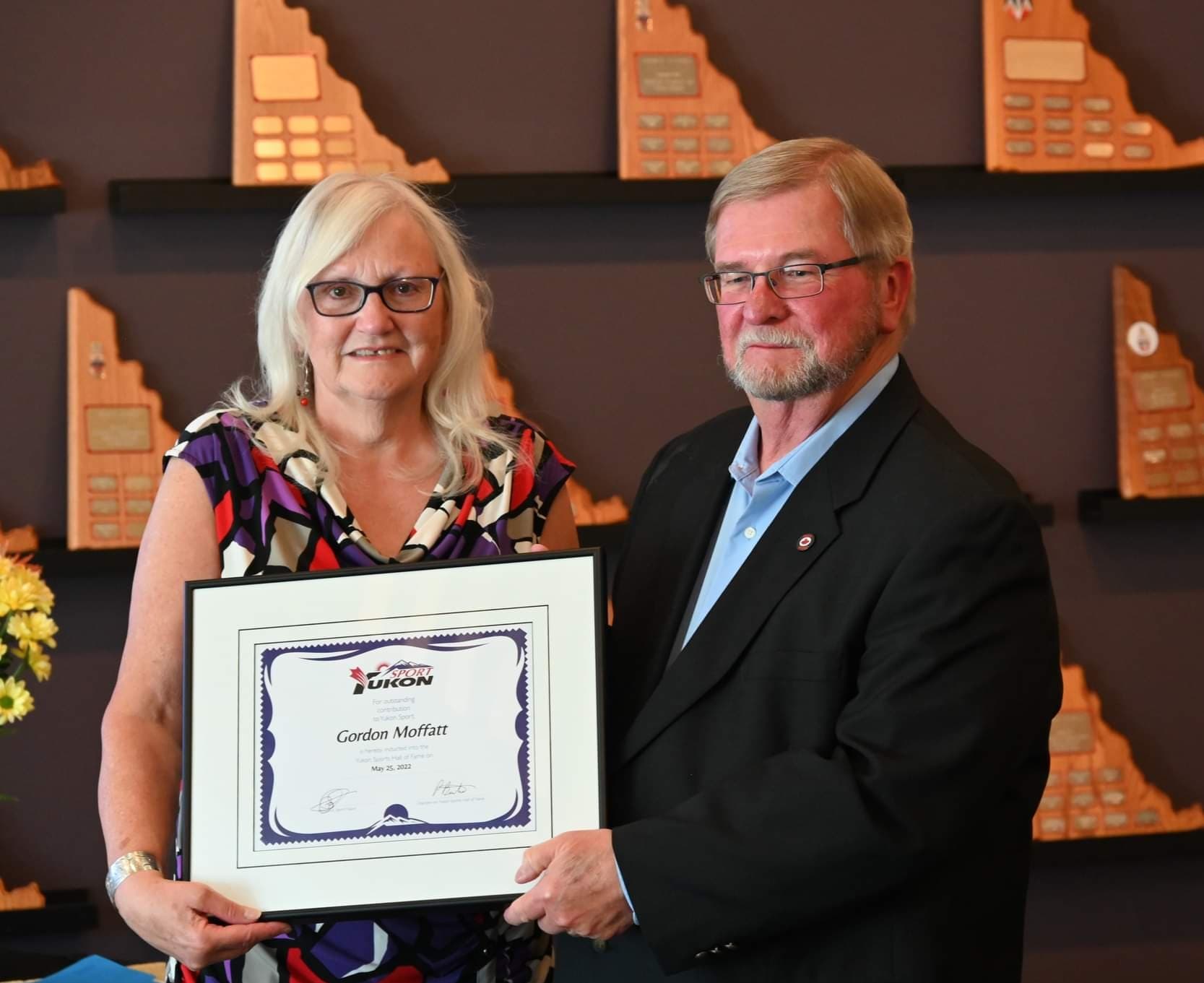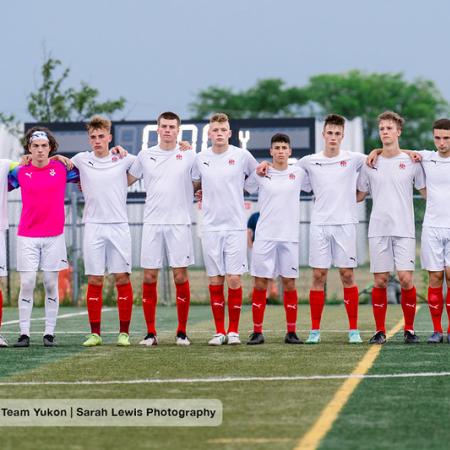
2022
Team of the Year
Canada Summer Games - Men's Soccer Team
The impressive showing of this team at the 2022 Canada Summer Games led to the Yukon's best-ever performance at the Games.
At the Canada Summer Games in Niagara Falls, Team Yukon’s Men’s Soccer Team exemplified the spirit of collective achievement at the heart of teamwork, defeating provincial teams from Nova Scotia and Manitoba to deliver a seventh place finish - the team’s best ever performance at the Games.
Competing at the national level, against provincial teams with greater resources can be difficult, so performance at this level is a testament to the hard work and dedication of this team’s athletes, coaches, and supporters.
The Yukon is home to exceptional talent and a deep well of committed, promising athleticism, and this team showcased the incredible potential of the Yukon on the national stage.
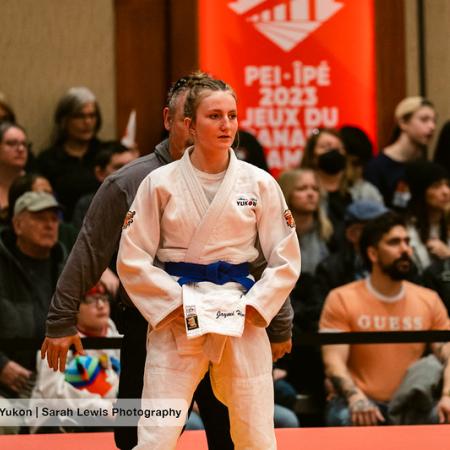
2022
National Athlete of the Year – Female
Jaymi Hinchey
An enthusiastic and positive athlete whose impressive achievements in judo match her commitment and passion for the sport.
Jaymi Hinchey has represented the Yukon in judo and wrestling competitions across the country.
In 2022, Jaymi podiumed in six separate regional, provincial, and international events and became the highest-ranked Yukon athlete in the first week of the Canada Summer Games. She is ranked 3rd in Elite Nationals points leaders.
Even more commendable than her high level of achievement in judo and wrestling is how Jaymi commits herself to the sport and her own development. She brings energy, enthusiasm, and positivity to her training, perseveres through challenges, and is a leader and role model among her peers.
In all facets of her involvement in sport, Jaymi acquits herself with respect, passion, and tenacity.
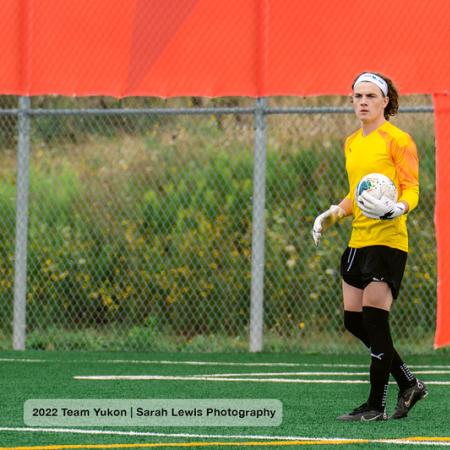
2022
National Athlete of the Year – Male
Callum Weir
An exceptional soccer player who has represented the Yukon at the national level.
Callum Weir competed in the Canada Summer Games as part of our Men’s Soccer Team and contributed to the team’s history-making performance.
Originally from Haines Junction, Callum is a talented goalkeeper who has represented the Yukon in both soccer and futsal, has played with professional soccer clubs in Victoria and overseas in Germany, and was named to Canada’s national Men’s Futsal Team.
On the back of his performance at the Canada Winter Games, Weir was named to the Games’ Men’s Soccer All-Star Team.
For all his success, Callum remains a modest and positive team player, who values his team, his coaches, and the various supporters that have helped him get to where he is now. His dedication to soccer and futsal has paid off personally, and his continued contributions to Yukon sport have helped elevate our profile on the national level.
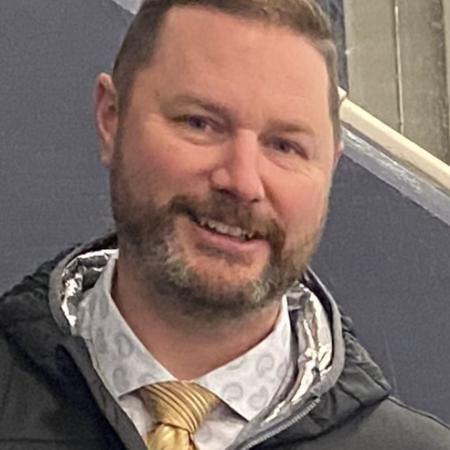
2022
Coach of the Year
Geremy Newbury
A dedicated coach whose exceptional efforts have elevated Whitehorse Minor Hockey.
Geremy has been involved with the Whitehorse Minor Hockey Association for the past five seasons, in which he has served as a head or assistant coach of a number of teams, including being Head Coach of the U13 Mustangs A team.
He is known for creating a culture of respect and hard work, and his commitment extends to his dynamic practice plans, commitment to the development and mentorship of his athletes, and belief in leading by example - bringing a positive and constructive attitude both on and off the ice.
The results speak for themselves - the U13 Mustangs A team won gold at two tier 3 tournaments and very nearly won gold in a tier 2 tournament.
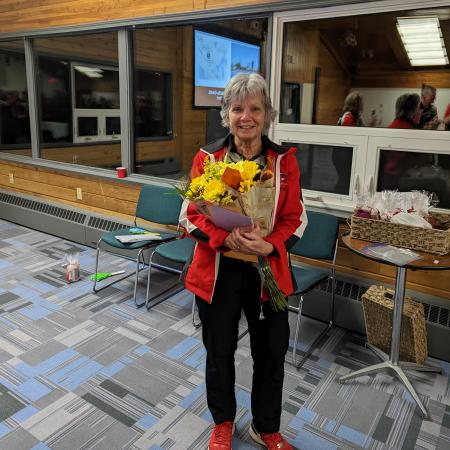
2022
Administrator of the Year
Brenda Dion
A passionate leader, diligent manager, and a crucial member of the Yukon sport ecosystem.
Brenda has been involved in sport in the Yukon for over 20 years serving on a number of sport boards including Athletics Yukon, Canada Senior Games Association, and the Yukon Pickleball Association, where she has been instrumental in growing the sport in communities across the Yukon, and through the “Pickleball Fundamentals” program with the Canada Games Centre.
Brenda’s enthusiasm for sport is infectious and inspirational, and her impact on our community can be measured in many ways: in building senior participation in sport, in promoting healthy active living, and in leading sport organizations and initiatives with compassion, vision, and fairness.
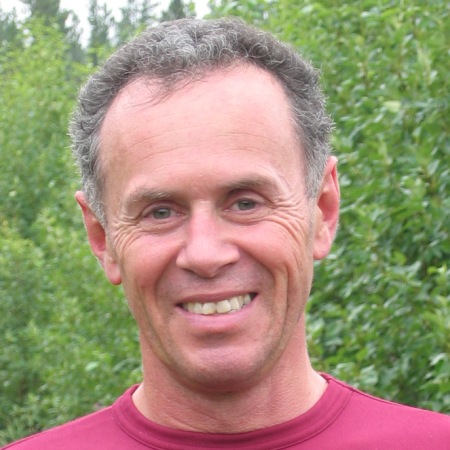
2022
Hall of Fame
Ken Sylvestre
A cornerstone of the Yukon sport community, Ken cherished and championed outdoor sport as a key organizer of two of the territory's biggest athletic traditions.
A born-and-raised Yukoner, Sylvestre’s love of the outdoors was well known, and fed his passion and involvement in outdoor sport. He believed in serving his community and in sharing his excitement for outdoor sport.
He was a founding organizer of the Yukon River Trail Marathon (YRTM), a long-time volunteer board member and organizer of the Kluane Chilkat International Bike Relay (KCIBR), and a cornerstone of the Yukon athletic community.
In addition to his major roles with both the YRTM and the KCIBR, he was a dedicated volunteer who gave his time to the Yukon Soccer Association, the Klondike Road Relay, and more.
In his professional life, Sylvestre was a talented systems expert, which he applied to sport as the Vice-President of Information Technology for the 2007 Canada Winter Games and Assistant Director of Communications and Information Technology for the 2000 Arctic Winter Games.
He lent that same expertise to the KCIBR and to the Klondike Road Relay, serving for 20 years as the former’s database expert and Chief of Results, and helping both events develop and implement new registration and timing systems.
Sylvestre died suddenly and unexpectedly in December of 2022. He is remembered as a warm and intelligent colleague, a friend with a keen sense of humour, an inspiring leader and volunteer in the sport community, and a much loved friend, husband, father, and grandfather who will be deeply missed.
2022
Hall of Fame
Jamie Shaw
A beloved basketball coach and teacher whose tireless championing of education and youth sport left an indelible mark on the community.
Shaw was a dedicated coach and teacher as well as serving as the athletic director at F.H. Collins Secondary School from 2007 to 2016, when he became the school’s Vice-Principal.
He coached a number of teams across a variety of sports, including basketball, hockey, and athletics, and coached for Team Yukon in numerous national and international competitions, including the Canada Games, Arctic Winter Games, Western Canada Games, and more.
Shaw believed that hard work paid off and saw sport as the perfect conduit for athletes and coaches alike to challenge themselves, to grow, and ultimately to succeed.
“Sometimes in life things go wrong,” Shaw said. “It’s how you deal with it. Sports give us the avenue to learn how to deal with it.”
He cherished education, both as a responsibility and privilege as a teacher, but also as a life-long student, who continually trained and gained coaching certifications in a variety of sports.
Known for his humour and generosity, Shaw was equally dedicated to the development of Yukon coaches as he was to athletes, mentoring numerous coaches who continue to work hard developing sport across the territory.
In 2018, Shaw passed away following a decade-long battle with cancer. In that time, his dedication to athletes and coaches never wavered, and he continued to infuse his energy and enthusiasm into every corner of the Yukon sport community.
His passion for sport and commitment to life-long learning is carried on by the Jamie Shaw Memorial Fund, which provides access to training and development for Yukon athletes and coaches; and by the Jamie Shaw Basketball Tournament held annually in Whitehorse.
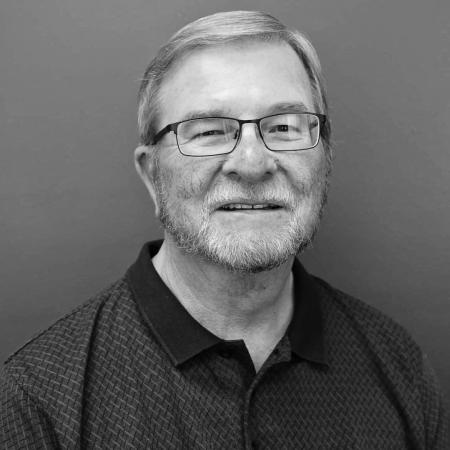
2021
Hall of Fame
Gordon Moffatt
Having been a dedicated curling coach for over 30 years in the Yukon, Gordon Moffatt has coached countless territorial teams at the National level.
Gordon began his curling journey at three-years-old when he joined his mother at the rinks of his hometown Winnipeg, Manitoba. His playing career began when he was in high school in the 60s. After high school, Gordon continued curling while at the United College in Winnipeg then later at Lakehead University in Thunder Bay.
His switch to coaching began when he moved back from Thunder Bay to Winnipeg. Eight months after returning home, he moved to Swan River, Manitoba where he lived and coached for the next 14 years.
He was inspired to begin coaching after taking a Curling Canada course in the 70s taught by Warren Hansen and Garry DeBlonde. It was those two who suggested to Gordon he should become an instructor. A few years later he became a provincial course conductor.
Gordon arrived in the Yukon in 1989. At the suggestion of Gary Hewitt, Gordon began coaching a team from Atlin – the "Atlin Boys".
After going to his first national event, the Canada Winter Games in P.E.I in 1991, with Team Andrews, Gordon was hooked. It was there he decided he wanted to be a National level coach.
With the support of his wife Gwen, daughter Lindsay and son Scott, Gordon has been a staple on the sidelines for many Yukon curling teams.
He’s coached at the Brier, Scotties Tournament of Hearts, Canada Winter Games, Junior National Championships, and the Optimist International bonspiels.
You can still find Gordon coaching Yukon teams at the National level. His outstanding service to curling makes him a must-have in the Yukon Sports Hall of Fame in the coach category.

2021
International Athlete of the Year – Male
Étienne Geoffroy-Gagnon
The International Male Athlete of the Year Award went to freestyle skier Étienne Geoffroy-Gagnon.
Étienne spent another ski season on the international stage. In 2021, Étienne received his first invitation to the Dew Tour slopestyle competition. The Dew Tour is a step beyond World Cup competition and a step toward the X Games.
It was also the qualifier for the Winter Olympics.
At the Dew Tour, from Dec. 14-18, in Copper Mountain, Colorado, Étienne finished third in qualifications and eighth overall.
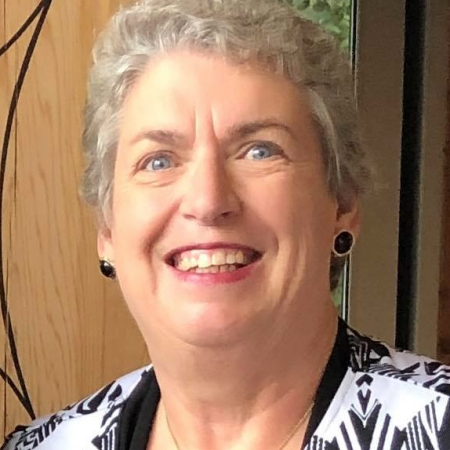
2021
Administrator of the Year
Janet Mann
Jan Mann has been a long-time volunteer in many organizations in the Yukon but recently devoted her time to being the treasurer of ElderActive.
In her time with the organization, Jan has developed and delivered financial literacy training to new board members and has worked closely with the executive director to modernize the financial reporting system. She’s also taken the lead in preparing the ElderActive annual budgets.
In addition to her treasury role, Jan has single-handedly (with regular board input) taken on the job of reviewing and rewriting the ERA constitution and bylaws to ensure ERA is ready for the transition to the new Societies Act and Regulations.
These contributions to ElderActive make Jan Mann a worthy winner of the Administrator of the Year.
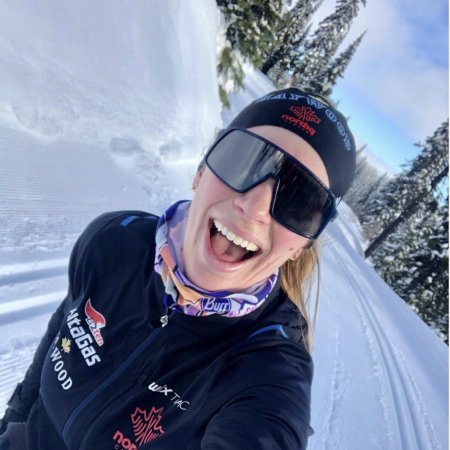
2021
International Athlete of the Year – Female
Dahria Beatty
The International Female Athlete of the Year Award went to Dahria Beatty, who once again represented the Yukon on cross country skiing’s biggest stages.
In 2021, Dahria had three top 20 finishes. She placed 15th in the 15-kilometre free at the Engadin World Cup in Switzerland. It was Beatty’s career-best in a distance race.
At the Oberstdorf World Championships in Germany, Dahria placed 12th in the Team Sprint and the 4X5 kilometre relay team she was a part of finished ninth.
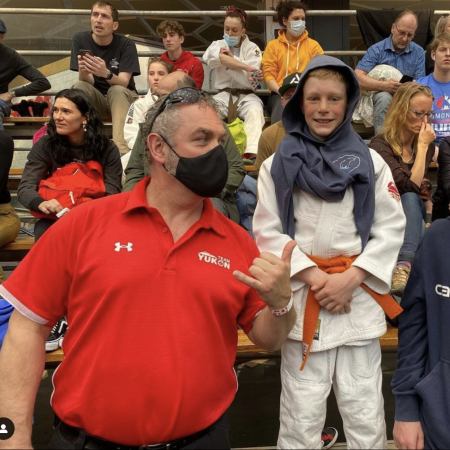
2021
Coach of the Year
Aaron Jensen
The coach of the year winner for 2021 was Aaron Jensen, for his dedicated work in Judo.
|
Although COVID-19 restrictions cancelled competitions for the Yukon’s judokas, Aaron continued to share his passion for the sport and train athletes and inspire fellow coaches. Aaron offers fundamentals to train to compete to his athletes and has worked with other combative sports like wrestling, and Brazilian Jiu-Jitsu.
In fall 2021, Aaron participated in a Comp Dev weekend clinic in Burnaby facilitated by Judo Canada. He’s also a part of a coach development team with other coaches in Western Canada.
Congratulations Aaron on being named Sport Yukon’s 2021 Coach of the Year. Judo is truly a way of life for him. |
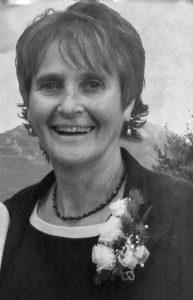
2020
Hall of Fame
Lorraine Kuhn
A builder of sport for over 35 years, Lorraine has dedicated herself as a volleyball athlete and coach. She shares her passion and motivation with others so they too develop into leaders
A star from the start, Lorraine honed her volleyball and field hockey skills at the University of Alberta (Teaching and Physical Education), where she was named female athlete of the year in 1969 - 1970. As soon as she arrived in the Yukon she devoted herself to building the Polar Games to engage kids in healthy physical activity and organized sport. It was only natural she created competitive opportunities between schools.
Believing to build the teamwork you need to play quality competitors and test your limits, she coached generations of young people and exposed countless Yukon athletes to high-level competition. She trained volleyball and basketball players and took them to compete at the Arctic Winter Games, Canada Games and National Championships.
She was a co-founder of Volleyball Yukon in 1996 (along with Gerry Kuhn and Mike Harper) and encouraged athletes to get their coaching and officiating credentials through Sport Canada. She was a big believer in giving back and recognized the potential in athletes who coach junior teams, creating capacity and skill in the sport and the Yukon.
Lorraine remains one of Yukon’s champions and her legacy continues to build a strong and prosperous community of sport in our territory.
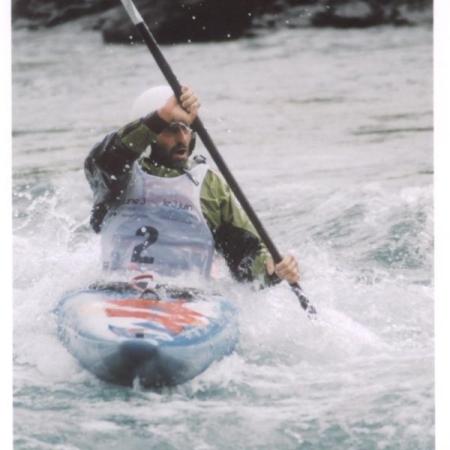
2019
Hall of Fame
Bob Daffe
Bob made a splash in Yukon Sport when he began canoeing in 1969, soon moving on to kayaking and rafting.
He’s built a life by teaching others to paddle as well as boosted local white water paddling for more than forty years, culminating with the Yukon Canoe and Kayak Club. Working as a raft guide, he sees the value of sharing rescue skills and delivering development courses.
When his son Kevin became immersed in the white water world with encouragement and coaching from Bob, he became Yukon’s first international paddling athlete. He’s competed in many of the annual Whitewater Rodeos hosted by his beloved YCKC, and as much as he loves being an athlete, he also makes waves as an organizer, volunteer and business supporter. From freestyle to slalom to safety, nothing gets lost on the water with Bob.
After developing an education initiative during paddling trips in Uganda. Bob is now spearheading an art history project with YCKC. Historic river maps are digitized and retouched, given to the Yukon Archives and subsequently shared with the greater community. Bob continues to use his paddling skills to build community and elevate others. Welcome to the Sport Yukon Hall of Fame Bob, where you belong.
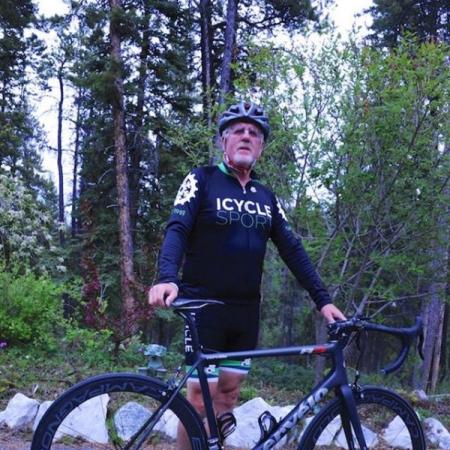
2018
Hall of Fame
Bill Curtis
It’d be tough to find a sport Bill Curtis hasn’t tried and succeeded in.
His taste for competitive sport was ignited when he played varsity rugby (McMaster University). He had to pick up juggling when he started playing critical roles as a builder, an official, an administrator and a participant in a variety of sports in the Yukon. They keep him moving 365 days of the year.
With over 30 years of involvement in cross-country skiing, Bill is the living definition of commitment. He has served on the board of directors at the Mt. McIntyre Recreation Centre and was the centre’s representative on the board of the Whitehorse Cross-Country Ski Club (“the Ski Club”). With his Level Two officiating credentials earned, Bill was the chief of timing and chief of stadium for the Vachon Cup and the Western Canadian Championships. In 1992 he was named as chief of race for the Arctic Winter Games.
Bill loved the Ski Club so much, he served on its board for 24 consecutive years, including two terms (nine years) as president and seven years as vice president. His credentials, combined with his determination, meant the Ski Club successfully hosted the Canada Winter Games, the Arctic Winter Games and the national cross-country ski championships (2010 and 2016).
Biathlon Yukon so valued Bill’s contributions it nominated him for special recognition: He became a recipient of the Commissioner’s Award for Volunteer Service. In 1999 and 2002 he was named Sport Yukon’s administrator of the year, and in 2019 Bill was awarded the Father Mouchet award for individuals who’ve made an outstanding commitment to cross-country skiing.
Bill won’t stop there. He’s also been involved with:
- Biathlon Yukon
- Squash Yukon
- Yukon Canoe and Kayak Club
- Softball Yukon
- VeloNorth
- Basketball
- Badminton
With a list like that it won’t be surprising if a new version of the decathlon was named after Bill Curtis. He is indeed a champion for so many and a champion of so much.
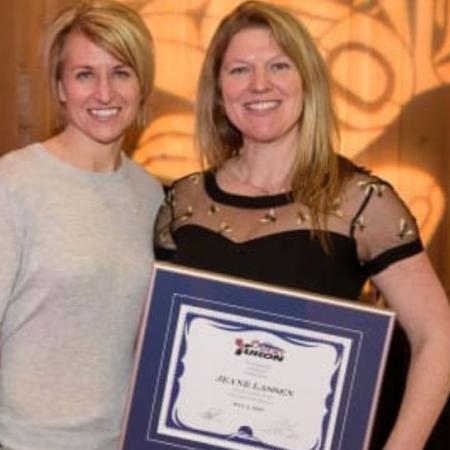
2017
Hall of Fame
Jeane Lassen
Lifting weights is one way to become a better all-round athlete.
For Jeane Lassen, already a member of the Yukon Youth Soccer Team and playing every school sport in her sights, she wanted to lift just to train. But within a year she was on her way to her first Junior Nationals where she medaled and qualified for the Canada Games. At the 1995 Canada Winter Games, Jeane won silver and punched her ticket to her first Junior World Championships, becoming the youngest member of Team Canada. She went on to compete at six Junior World Weightlifting Championships and won three silver medals for Canada (1995 - 2000).
In an international career spanning the years 1995 - 2012, Jeane continued bringing home the hardware. She won medals at multiple Pan Am Championships, Pan Am Games, Commonwealth Games and several World Cups. It was Jeane’s performance at the 2006 World Championships where she won two medals: A silver in the clean and jerk and a bronze in the total, cementing Jeane in Yukon and Canadian sports history. She set dozens of Canadian, Pan Am and Commonwealth records — several of them remaining unbroken to this day. Jeane qualified for the Olympic Games as an alternate for Team Canada in 2002, 2004 and 2012 — in 2008 she represented our territory and Canada in the Beijing Olympics. After IOC retesting Jeane’s Olympic result was adjusted from eighth to fifth place.
Jeane feels her biggest contributions and influences to the sport have been achieved away from the lifting platform. She was driven to help establish the FH Collins Sport School, which supports Yukoners across the territory. Jeane coached fellow athlete Christine Girard to a gold medal at the 2012 London Olympics and had the distinct honour of being selected as an Athlete Mentor with Team Canada at the 2018 Pyeongchang Winter Games. Jeane says it’s been the moments when she’s drawn on her journey to support Yukoners and Canadians in their pursuits of excellence that she’s experienced her real career highlights. Jeane Lassen is a true champion of champions.
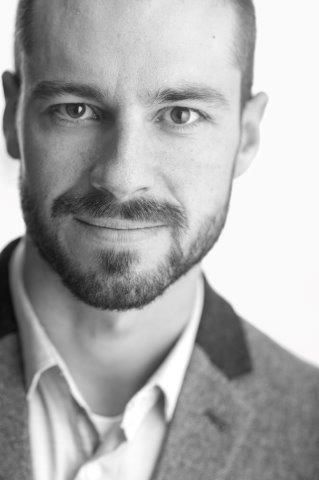
2017
Hall of Fame
Zach Bell
From the mat to track, Zach Bell epitomizes finding opportunity and achieving excellence.
Born in Whitehorse and raised in Watson Lake, Zach enjoyed every sport that crossed his path. He made strides in cross-country running and skiing and dove into badminton where he’d hustle and hit and never quit. But it was his love of wrestling that took him to the University of Calgary. His development on the varsity team landed him a spot on three Arctic Winter Games teams.
Another transition was in the cards for Zach. He discovered his aptitude for road and track cycling. By 2005 he qualified for his first national team project, cruising consistently for Canada. He medaled at eight cycling world cups — winning three of them. Zach also earned two world championship silver medals and won the world cup overall series in 2011. He earned a major games medal at the 2010 Commonwealth Games in India. Making tracks was inevitable for Zach: He was the first male and first of a pair of Yukon natives (the other being Jeane Lassen) to compete in the 2008 Beijing Olympics. Zach also represented Canada at the 2012 London Olympics and his final international hurrah was at the 2014 Commonwealth Games in Scotland.
Adding to his track cycling results, Zach enjoyed an extensive road cycling career highlighted by multiple international wins and a Canadian professional road championship in 2013.
Never giving up and always giving back, Zach continues to work as a coach and leader of sport programs where he excels as both coach and mentor for the grassroots community right through to Olympians.
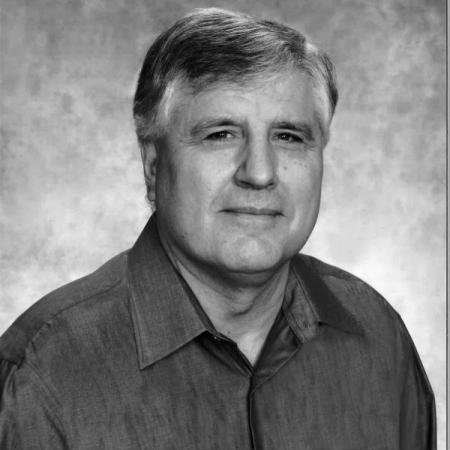
2016
Hall of Fame
Paul Butra
Making his mark for nearly forty years on the court, Paul Butra is an outstanding inductee in our Builder category. He’s played an integral role in growing the sport of basketball in the territory and joins more than 50 Yukoners who’ve made a significant contribution to the growth and development of amateur sport in the Yukon.
Paul stepped onto the court as an official for Basketball Yukon in 1983. A Level Three certified official, he was Head Official for the 2018 Arctic Winter Games in Fort Smith-Fort Liard. He’d already held that position at several Arctic Winter Games and also sat as Chair of Officials during the 2007 Canada Winter Games.
In his capacity as a head official, Paul organized officials from several jurisdictions, trained and worked with table staff, and ensured each venue had all required equipment and floor markings. A fixture in the gymnasium, Paul has spearheaded referee training sessions and officials. He is a true professional in amateur sport.
Paul enjoys coaching at every level — from grassroots to elite programs. He dabbles in high school coaching, Yukon U19 representative coaching, and he was the coordinator for the Steve Nash basketball program in 1999. Paul served as the President of Basketball Yukon from 1989 - 2003 and was a member of Basketball Canada’s President’s Council from 1995 - 2003. He remains a committed member of Sport Yukon’s Board of Directors.
Paul’s passion for sport in the territory, and in particular his dedication to the game of basketball and to officiating, will never go unnoticed.
2015
Hall of Fame
Les Johns
Les Johns has been a vital part of building the sport of Archery in the Yukon, giving countless hours of his volunteer time to share his passion.
Les felt it important to access the schools to develop the sport, and brought archery to almost every community school. He became part of some school’s yearly physical education plans, and the students were delighted when he would walk through the door with his bows, animals, and balloons. Les felt schools were where young people are introduced to the sport, enabling them to develop their skill, and in turn become the base of elite athletes who have represented Yukon at our major games.
After a successful trip to the 2006 North American Indigenous Games in Denver, Colorado, Les and others worked to ensure that a Yukon Archery Team was ready to compete in front of a home town crowd at the 2007 Canada Winter Games in Whitehorse. This was the first time since the 1970’s that Yukon sent an archery team to the Canada Games. Les has attended a number of major games as an athlete, coach, mission staff, and official. He is the face of Yukon archery and is respected by his peers coast to coast to coast. Les continues to this day, to travel throughout our territory offering classes, after school programs and adult classes in Archery and dene Games.
Les John’s time, energy and commitment to sport, and to developing youth, are significant and should be recognized. Thank you Les.
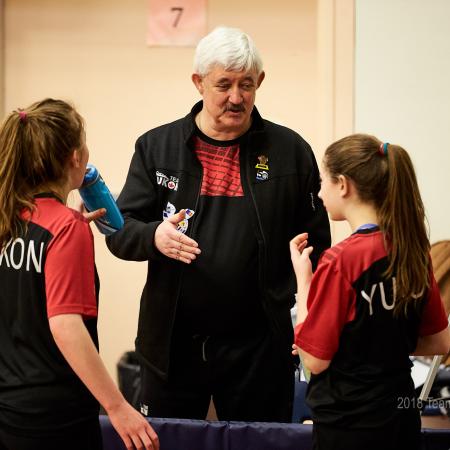
2015
Hall of Fame
Kevin Murphy
At the age of 14, Kevin Murphy’s participation in and dedication to the sport of table tennis began. Over the next 40 years, he competed in several Arctic Winter Games, National Championships, Canada Games and numerous other provincial and local tournaments.
One of his many outstanding achievements is earning the title of the Yukon’s Men’s Singles Champion more than 20 times. True to form, Kevin is the highest-rated Yukon player in the National Table Tennis database.
Coupled with his competitive play, Kevin vigorously pursued his coaching qualifications and holds his Level Four National Coaching Certification. This difficult-to-obtain level of coaching enables Kevin’s athletes to train at higher standards, grow into elite athletes and compete at any national event.
Table tennis was dropped from the Arctic Winter Games in the eighties, but Kevin single-handedly kept the sport alive in the Yukon. He was relentless in recruiting new players and conducted clinics in schools across the territory. His efforts created the annual Yukon-Alaska Challenge, and he was awarded a Builder’s Recognition Award from the Alaska Association. Kevin had a team ready to compete when the sport returned to the Arctic Winter Games.
Kevin’s humility, pursuit of excellence and dedication to the sport means Yukoners will enjoy the opportunities the game brings for many generations to come.
2014
Hall of Fame
Diana and Bill Simpson
Diana and Bill Simpson left their stamp on the well-being of seniors and elders in the area of sport and recreation.
They helped build the ElderActive Recreation Association, which fosters active living and physical activity through participation in sport and recreation. In the process, they also built the structure of Team Yukon to participate in the biennial Canada 55+ Games. Team Simpson was instrumental in making the 2004 Canada 55+ Games in Whitehorse a huge success, hosting over 1,200 active and engaged participants from across the country.
Long after the Games were held in Whitehorse, Diana and Bill continued in their leadership roles. They built links, relationships and partnerships between ElderActive and other recreation organizations in the territory. ElderActive had a starting membership of just 50 in 2000, and the Simpsons grew it tenfold by 2014.
From old guard to new stars, Team Simpson’s legacy lives on.
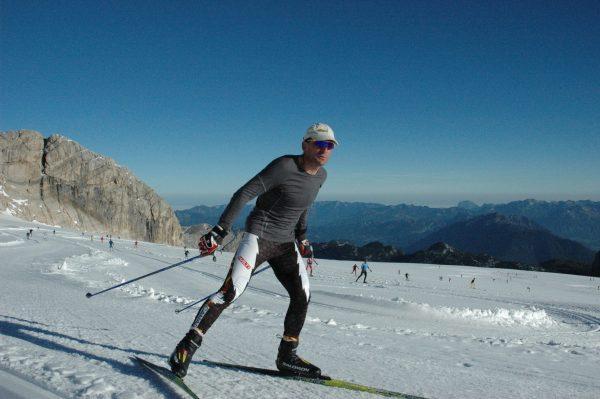
2013
Hall of Fame
Alain Masson
With unparalleled leadership in developing cross-country skiing in the Yukon, Alain Masson secures a top place in the Yukon Sports Hall of Fame.
Alain’s dedication to coaching athletes is manifested in the significant number of high-calibre national and international skiers who call Yukon home. Following a distinguished career as an athlete — including three Olympic appearances as a skier and a cyclist — Alain joined Cross Country Yukon as head coach and Sport Coordinator in 1996.
Alain claims one of his proudest accomplishments was coaching an unprecedented five Yukon Athletes to spots on the 16-member Team Canada group which competed at the 2012 World Junior and U23 World Championships.
2012
Hall of Fame
John Flynn
Dawson City’s Art Fry Boxing Club has a knack for producing athletes worth immortalizing. John Flynn becomes the third boxer from the club to be inducted into the Yukon Sports Hall of Fame.
John began his sports career boxing at the club before moving on to other sports. After leaving the canvas, John was hooked on hockey and snowshoe biathlon, two sports he’d have more success in. John played a key role on Yukon’s silver medal-winning hockey team in the 1974 Arctic Winter Games in Anchorage, Alaska.
That silver pales in comparison to what he accomplished at the games in the snowshoe biathlon. John captured 13 medals — including nine gold — all at the Arctic Winter Games.
Keeping active as a coach in both sports, John took a peewee boys’ team on to win gold at the Yukon Hockey Championships. He was instrumental in the recreation of the 1905 Dawson City Nuggets game against the Ottawa Hockey Club (a.k.a. The Silver Seven) for the Stanley Cup. For 22 days, the Nuggets mushed dogs and snowmobiled to Whitehorse. Instead of taking the White Pass railway like the 1905 team, they bused to Skagway, ferried to Bellingham, Washington, hopped a bus to Vancouver and took the train to Ottawa.
John captained the Nuggets in 1997 and 2011 as part of Hockey Day in Whitehorse. The Nuggets and Ottawa Senators alumni staged two games in the Yukon (Whitehorse and Dawson). Even though Ottawa kept its 106-year winning streak over the Nuggets going, John enjoyed scoring a spectacular goal.
2011
Hall of Fame
Suzanne Bertrand
You could say Suzanne Bertrand swept her way to stardom. Taking up the sport of curling at the age of 12 in Saskatchewan, Suzanne moved to the Yukon to begin her teaching career. After work, she volunteered as an assistant instructor in the old Whitehorse Curling Club.
Suzanne began the NCCP certification process in the mid-eighties, moving from Levels One through Three in less than a decade. She was also a certified Level Two course conductor and a Master Learning Facilitator for curling. At the time of her death, she was just a handful of courses shy of obtaining her Level Four.
Suzanne took teams to the junior nationals in 1988, 1989, 1996 and 1997. Keeping the spirit going in her family, her daughter Michele and her daughter-in-law Dawn earned spots on some of these rosters, including in 1988 when their team won bronze at the juniors. That same year Sport Yukon recognized Suzanne as Coach of the Year. Reflecting courage and humility, the team was awarded Most Sportsmanlike Team in 1989.
Her accolades kept on coming. Suzanne was recognized nationally with the 3M Coach of the Year Award in 1999, and in 2004 she received the Volunteer of the Year award from the City of Whitehorse. A year later CCA recognized her tireless efforts with the Volunteer of the Year Award for Canada.
Suzanne coached several teams at the Canada Winter Games, and in 1999 she coached a men’s rink at the Brier. In 2000 and 2003, she coached her son Chad’s rink to Brier success again. During this high-profile period, Suzanne somehow found the time to coach Yukon teams at various Arctic Winter Games, with one of the teams winning gold in 1988.
Quite literally hundreds and hundreds of curlers were coached by Suzanne. It will be a true challenge to fill her shoes.
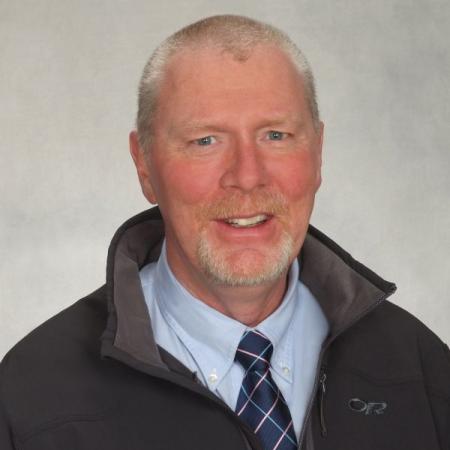
2010
Hall of Fame
Tim Brady
A consummate juggler of many moving parts, Tim Brady has managed Basketball Yukon’s strategic and multi-year organizational plans, operation and maintenance budgets, annual YRAC grant applications, special program grants, policy initiatives and administrative and technical service contracts from 2004 to the present.
Tim is so much more than paper. He also developed, facilitated and coached the Pan Territorial U17 Men’s Basketball team several times from 2006 onwards, all the while also coaching the Pan Territorial U17 Women’s Basketball team in 2008. A four-time nominee and two-time recipient of the Yukon Coach of the year award (presented by Sport Yukon), Tim also received the Sport Yukon Team of the Year Award after the 2001 Men’s Canada Summer Games Basketball Team. Pushing to excel at the top levels, he is also a two-time nominee and one-time recipient of the 3M Coaching Canada Award for Excellence (1996 and 2000).
Humble to his roots, Tim developed and implemented recreational-based as well as elite performance camps and training programs in the Yukon territory, including the Intensive Training Basketball Programs and Regional Training Centre programs for boys and girls, starting in 2004 and still runnings. His hand is also responsible for the Midnight Sun Hoops League (1998 - 2002), Yukon’s Breakfast Basketball Programs and the Basketball Yukon Summer Basketball Camp Program.
It is clear basketball in the Yukon continues to benefit from someone who has truly given of himself. Tim’s commitment and dedication to this sport are more than significant — they are life-changing. Sport Yukon is proud to induct Tim Brady into the Hall of Fame.
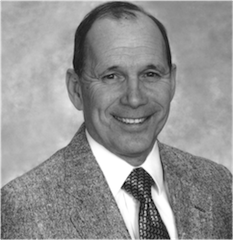
2009
Hall of Fame
Peter Cassidy
Moving to Mayo, Yukon to kickstart his teaching career, Peter Cassidy soon took to coaching any sports programs that cross his trail. Active in coaching volleyball, badminton, track and field, basketball and many others, it’s a wonder Peter had any time to teach at all.
Peter made tracks to Whitehorse to take up the position of department head at F.H. Collins Secondary School. With the support of colleagues, he ran the Volleyball Yukon Championships at the school for a decade, becoming a fixture in the volleyball community. Believing every student should have the opportunity to play sport at a competitive level, Peter would often coach three different levels during the same season.
The pinnacle of Peter’s volleyball career was the team he took to the 1987 Canada Games in Nova Scotia. To prepare for these games, his team participated in the B.C. Norther Games and took home the gold medal. It was an unexpected win and his team was invited to the B.C. Provincial Championships (Mission, B.C.) even though they were a team from the Yukon territory. They pulled off a bronze medal. They bumped that up to a Gold Ulu when Whitehorse hosted the Arctic Winter Games.
Peter has instilled a love for the game of volleyball in many citizens of the North. His athletes have gone on to the national level and many have returned to the Yukon to teach, coach and become leaders in our sport and recreation community. He continues promoting sport and leisure activities through outdoor education trips focussed on developing self-esteem in students. As Head Master at Gadzoosdaa Student Residence, Peter is keen on developing the whole person in the best way possible.
True to his interest in countless sporting adventures, Peter is now part of the Glacier Bears Swim Club, serving as a Board Member and Vice President.
He remains steadfast in his philosophy: Sport builds character. By this, he is a true leader.
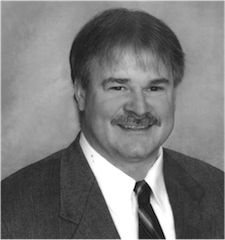
2008
Hall of Fame
Bud Arnold
Since moving to the Yukon at the age of nine, Bud Arnold’s life has revolved around hockey — on and off the ice.
Though he first hit the ice as a hockey player, Bud has chased the puck through administration, coaching and most significantly, officiating. He’s has been a certified hockey referee for over 40 years. At one point in his career, Bud was refereeing up to 250 games per year, which kept him at the rink six to seven days a week. As a highly sought-after official, Bud spent an equal amount of time at disciplinary hearings. It was his fine art of responding to irate players, coaches, parents and fans that helped him decide the course of action leagues could take to deal with infractions of hockey codes.
Bud has held numerous roles including coaching in the Whitehorse Minor Hockey, officiating in minor hockey, Major on-ice Official for the Junior B Claim Jumpers, Minor Hockey Timekeeper, Minor Hockey Referee-in-Chief, Member of Minor Hockey’s Disciplinary Committee, Arctic Winter Games Referee, and the Canada Winter Games Off-Ice Official. His true love and passion for the game are proven by his inability to shy away from stepping in wherever and whenever needed at hockey games of all levels.
Bud Arnold is more than a fan of hockey. He is the epitome of a true sportsman, garnering respect on and off the ice. Bud will always be our referee-in-chief in the Yukon Sports Hall of Fame.
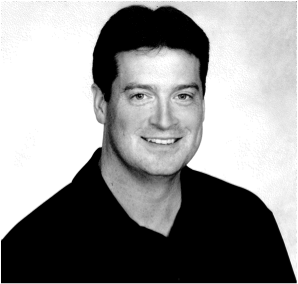
2007
Hall of Fame
Scott McCarthy
Some are born strong, others are made strong. For Scott McCarthy, both are true.
Scott started weightlifting in Faro at the age of 10, mostly because skating wasn’t a strength and he enjoyed watching his brother lift weights. Within three years Scott won his first Junior National medal. He went on to win hundreds of medals, trophies and champions’ plaques. He appeared at the Western Summer Games, the 1987 and 1991 Canada Games, the Western Canada Weightlifting Championships, and the 1998 and 1999 World Weightlifting Championships. It was at the 2002 Commonwealth Games in Manchester where Scott — earning two bronze medals — became Yukon’s first Commonwealth Games medal winner. After winning the 2003 Western Canada Weightlifting Championships in front of a hometown crowd in Whitehorse, Scott put his bar back on the rack for good.
Although he was no longer competing as an athlete, Scott coached other lifters to two consecutive Canada Games as well as coaching the Canadian National Junior Team at the 2003 World Championships in Mexico. One of the athletes he coached went on to reach the podium more than once — Emily Quarton followed Scott’s lead and won two silver meals at the 2006 Commonwealth Games in Melbourne, Australia.
People may think weightlifting is an individual sport. But Scott McCarthy’s influence turned weightlifting into team building, ensuring the athlete and the sport holds their own in the Yukon Sports Hall of Fame.
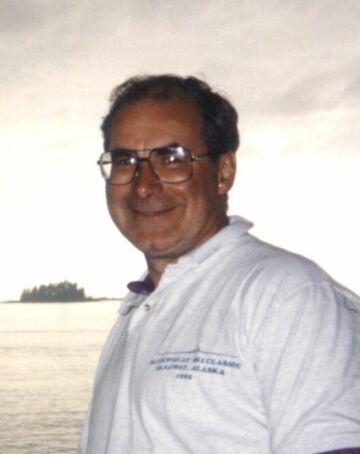
2006
Hall of Fame
Peter Milner
A gentle giant in the Yukon’s sport and recreation community, Peter Milner stood up for the people and the communities that needed it most.
Peter spent a lifetime ensuring all individuals and communities had access to sport and recreation. He was committed to equity and inclusion. He created a new approach in and between governments with the establishment of the Youth Investment Fund, the Kids Recreation Fund, the Youth Leadership Program and the development of a Yukon Aboriginal Sport Circle to represent the interests of Yukon First Nations in sport development within the territory. Peter supported the early development of a Yukon Active Living Strategy that included significant recommendations on how governments should work inter-departmentally to achieve strategic goals.
On the national level, Peter was a leader and builder at the Interprovincial Sport and Recreation Council and as the Provincial/Territorial Co-Chair of the Federal-Provincial-Territorial Physical Activity and Recreation Committee.
A believer in the concept of first dreaming it, then planning it, and finally doing it, Peter worked tirelessly outside of his government responsibilities. He served as a founding Director of the Great Northern Ski Society and served as its first President. When others were ready to give up on the idea of a downhill facility in Whitehorse, Peter pushed through with never-ending encouragement. He started the March Lake Loppet in 1995 and led the organization of the event for 10 years.
Peter was also the driving force to bring the 2007 Canada Winter Games to the Yukon, and as soon as the bid was successful he organized the Host Society, recruiting Yukoners into key positions.
The intensity in his enjoyment built immensity in our sport and recreation communities. Peter truly is a giant.
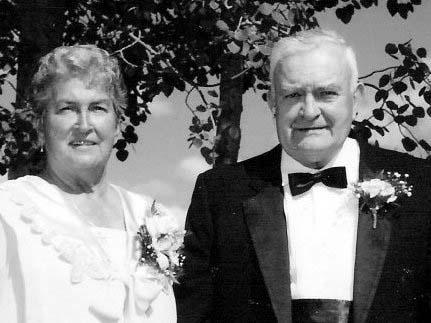
2005
Hall of Fame
Patricia and Major Evans
Dog Mushing would not be what it is today in the Yukon without Major and Patricia Evans. Their enormous contributions over four decades helped secure the sport on our territory’s map. Major is remembered for his unparalleled organizing and officiating skills, and his number one supporter Patricia’s equalled enthusiasm resulted in an increase of children and youth in the sport.
These exception volunteers gave countless hours of their time to travel all over Yukon, Alaska and Canada, fostering and maintaining interest in Dog Mushing, also known as Sled Dog Racing.
It was right on the banks of the Yukon River when Major was drawn into the sport while stationed with the military in 1957. The couple were posted outside of the territory for five years but then returned and played a vital role in the development of the Yukon Dog Mushing Association. Major was recognized with a lifetime membership a decade later in 1975.
As the sport’s top cheerleaders, the pair purchased race trophies for children for Whitehorse, Haines Junction and Teslin. Pat cherished the young mushers so much she became the trophies’ self-appointed caretaker, ensuring they were awarded attention at events like the Sourdough Rendezvous. Pat did this until she died in 1996.
Facing a deterioration in his hearing, Major adapted the role of starter with the inaugural Yukon Quest in 1984. He implemented a timed flag starting process so the mushers could watch the flags rather than struggle to hear the starting pistole above the excitement of the dogs. Major remained as the official starter until his 88th birthday.
Pat’s and Major’s dedication and enjoyment were contagious. The perseverance, optimism and selflessness they shared are characteristics respected throughout all Yukon communities. Major still loves the thrill of the race, and we are sure the couple blesses every musher traversing the trails.
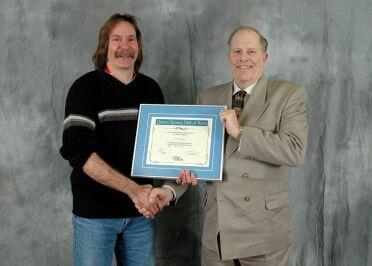
2004
Hall of Fame
Ross Burnett
If there’s ever a need to figure out a way around an obstacle, look no further than Ross Burnett.
Ross is one of the most highly regarded members of the Canadian Orienteering Federation (COP), and his experience as an athlete, coach, official and administrator places him in an elite group of people in the sport.
His time in varying roles often overlapped. He won three National Championships (‘87, ‘95 and ‘02) and was a member of four World Championship teams (‘83, ‘85, ‘87 and ‘89). Since joining the COP in 1976, he also served on its Board of Directors, its High-Performance Committee, National Team Coach (‘93 World Championships) and Team Leader (‘99 World Championships).
Born in Ocean Fall, British Columbia in 1959, Ross first arrived in the Yukon in the summer of 1987. His goal was to develop the first orienteering map of the Chadburn Lake area. Making the territory his permanent home in 1989, he has made enormous contributions ever since. He is one of a handful of enthusiasts who’ve achieved Level 3 Certification in both the National Coaching Certification Program (NCCP) as well as the COF — Officials Certification Program. His work developing new course structures and standards is now used at all National Championships and ‘A’ sanctioned events — these were the most significant technical developments introduced by the COF in 15 years.
Seen as an all-around ambassador of the sport, Ross built up the Yukon Orienting Association and boosted the quality of maps and experienced volunteers so the territory could comfortably host three Western Canadian Championships (‘94, ‘98 and ‘02). Under his tutelage, three of his proteges have been named to the national team and have competed internationally since 1993.
Recognition of his contributions goes well beyond the Sport Yukon Hall of Fame; Ross has also received eight Government of Yukon Awards of Excellence, all recognition for his elite athletic career, coaching successes and volunteerism. His dedication to orienteering is bolstered by his snowshoeing skills — having won 12 Snowshoeing Ulus at the Arctic Winter Games (‘92. ‘6 and ‘98).
We will be forever grateful for Ross as he continues to share his knowledge and experience with all sport enthusiasts.
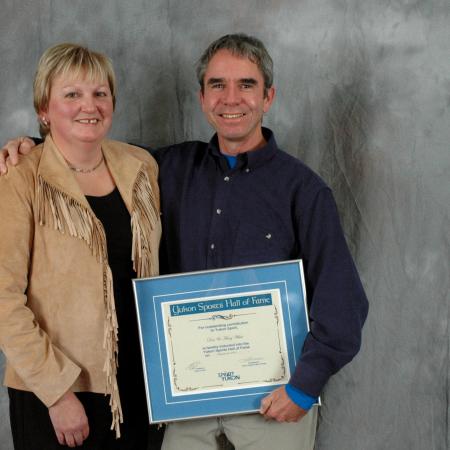
2004
Hall of Fame
Marg and Don White
Marg and Don White love sports no matter the season. Their outstanding contributions to Athletics, Cross Country and Curling are proof.
They are exceptional volunteers, giving countless hours to organize, coach and officiate. Keen to see all members of the sporting community engaged, they’ve opened their home to many needing a home base in the territory.
Mainstays of the Yukon running scene since 1986, Don is NCCP Level III Coaching certified and has coached at the local and national levels for both youth and senior athletes. A true role model, Don is a National Level Master’s Runner — sure to boost his skill and credibility as a coach. He’s also coached several Arctic Winter Games snowshoeing teams and volunteers with the Canadian Ski Patrol.
Marg has been timing running events for over three decades, from early spring through to the Klondike Road Relay in September. Her unparalleled encouragement throughout and smile at the end of a race is a cherished site for many Yukon runners. When not on the road, Marg can be found embracing the cold indoors. She has her NCCP Level IV Officiating certification and is now the Yukon Curling Association’s Head Official. She volunteers at the high-profile Scott Tournament of Hearts and officiates at the National Level. We value all of Marg’s contributions including all the time she has devoted to the Sport Yukon Board of Directors, and major games including the Arctic Winter Games and the Canada Winter Games.
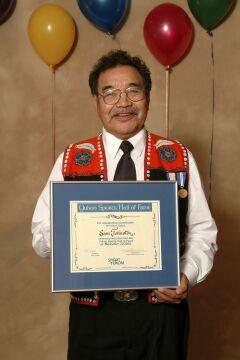
2003
Hall of Fame
Sam Johnston
Honour. Trust. Respect. Integrity. These are the leadership values Sam Johnston instills in his athletes. Born and raised in Teslin, Yukon, Sam immersed himself in Dene Games, Archery and Dog Mushing, and has dedicated his life to working with and coaching athletes of all ages and abilities.
Sam is a respected elder of the Ishkitan Clan of the Teslin Tlingit Council. His involvement in sports dates back to the early sixties when he was competing in Dog Mushing and taught younger people how to run and care for race dogs. He began teaching them the traditional game of stick gambling as well, and led him to coach and officiate Dene Games in the Arctic Winter Games for decades. He demonstrated how vital it is to embrace one’s efforts — not simply the outcome.
In archery, Sam proved to be as valuable a coach as he was an athlete, and he has coached at the North American Indigenous Games (NAIG) since the early 1990s. He is spotted with his bow with each community visit, encouraging up-and-coming athletes to pick up the sport and advance. His energy led him to be an active Tlingit dancer, spreading skills and heritage to young and old around the world.
Sam kept a life parallel to his athletic and coaching one and transferred his leadership values to the political arena. For over a dozen years Sam served as the Chief of the Teslin Tlingit Council and was elected as an MLA. Sam holds the honour of being the inaugural First Nation Speaker of the Legislative Assembly for the Yukon Government.
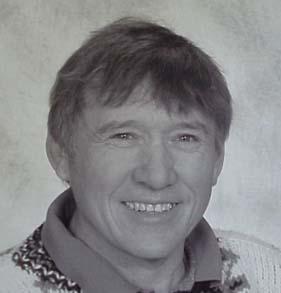
2002
Hall of Fame
Bob Sharp
Bob knew how to translate words in manuals to work on the mat. When he arrived in the Yukon as the Principal of the Ross River School in 1968, he began coaching wrestling.
The wrestling team enjoyed a series of clean finishes and won matches against older teams in the Whitehorse games. Immediately Bob began coaching cross-country skiing, spurred by a presentation on the TEST Ski program by Father Mouchet and Father Veyrat. He returned to his Alberta roots to solicit much-needed equipment and was gifted with jockstraps, mats, running shoes and miscellaneous items left in gym lockers.
Bob adapted the running shoes to ski “boots” and took his athletes to Inuvik and Old Crow for the Top of the World X Country Ski Championships. His wrestlers travelled to competitions in Alaska as well as the national championships. Still a contender in 1970, Bob competed in the National Wrestling Championships in Whitehorse. After breaking his rib in the second match, he stuck to coaching.
While making Old Crow his home between 1972 to 1976, Bob focussed on coaching cross-country skiing. When he became Vice-Principal of Whitehorse Elementary School, Bob renewed his passion for coaching wrestling. He was instrumental in renewing Yukon’s national status with the Canadian Amateur Wrestling Association. The number of Yukon teams grew and wrestling became increasingly active, spreading into South East Alaska competitions. For a dozen years, Bob continued upgrading his coaching skills through seminars at Simon Fraser University and in Jasper, Alberta. He took his skills across the ocean and continued coaching in New Zealand, and eventually began work on his Level III Certification.
A true mentor, Bob developed athlete training journals to guide and encourage athletes in taking a larger role in their training and development. By taking the lead and cultivating a protocol allowing male coaches to coach female athletes, the first and most crucial step to involving more females in the sport of wrestling was secured. Bob has enjoyed and excelled at coaching Yukon athletes at the Arctic Winter Games, Western Canada Summer Games, Canada Summer Games and the National Championships — all between 1968 and 2002.
Bob considers his top honour being a father and the first coach to world medallist Erica Sharp.
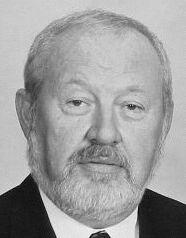
2001
Hall of Fame
Mike Wagner
Mike Wagner takes schussing to a whole new level. After co-founding the Canadian Ski Patrol System in the Yukon in 1983, Mike acted as the first training officer until he became President in 1985. Over his fourteen years as President, the Ski Patrol developed a national reputation as one of the top patrols in the country.
Under Mike’s direction, the Yukon Zone received the CSPS Award in 1989 for the most progressed ski patrol zone in Canada — a true honour bestowed on a grassroots effort after a mere five years of operation. In 1995, Mike received the Canadian Ski Patroller #669 Award, the highest honour awarded for contributions to the system that go above and beyond the level required.
The Yukon Zone was awarded additional awards in 2001: The Division Outstanding Zone Award and the National Outstanding Zone Award. These awards are given to the done that’s risen above the rest to promote safe skiing and provide the highest level of first aid rescue services to its region.
Mike also coordinated the provision of ski patrol first aid services for the Train of ‘98 Road Relay and numerous triathlons, bike relays, marathons, and alpine and nordic skiing competitions. His high standards of first aid training and safety instruction earned Mike the nickname of “The Enforcer” among other patrollers.
The vast number of well-trained and well-equipped ski patrollers and their record of community service are a fitting tribute to the incredible passion Mike Wagner put into the development of an exceptional Ski Patrol community in the Yukon.
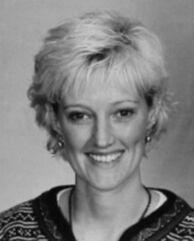
2000
Hall of Fame
Lucy Steele-Masson
A move ‘across the pond’ from Bristol, England to Yukon meant there was a lot to learn about snow for six-year-old Lucy Steele-Masson.
Believing it was going to be a one-year stint abroad, Lucy didn’t even begin skiing until she was 12 years old — and found herself representing the Yukon at the 1982 Arctic Winter Games. She excelled quickly in her chosen sport and competed at the High Performance Level for 15 years. By 1994 Lucy had received the Yukon Female Athlete of the Year Award — seven times. She continued to carve out her own ribbed pattern of freshly packed trails and received the Government of Yukon Award of Excellence 10 times.
At the National Championships, Lucy brought home 11 medals between 1984 and 1996. She also captured a Silver Medal in 1987, as well as three Gold Medals and one Silver Medal at the 1991 Canada Winter Games. Lucy did not rest there, going on to compete for Canada at the 1992 Albertville Olympics. Lucy will be forever known as an Olympian.
Lucy’s contributions to the sport of cross-country skiing don’t end on the podium. She has become a role model for youth as they aspire to accomplish great things and soar to greater heights. Her athletic and life journeys have been about determination, hard work, setting goals and chasing dreams — all accomplished through her passion for cross-country skiing.
Lucy’s life is defined by her pursuit of excellence, and the Yukon is better off for becoming her chosen home.
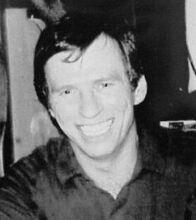
1999
Hall of Fame
Bill Sim
Arriving in the Yukon in his thirties, Bill Sim brought a commitment to service with him.
During his career in the Canadian Armed Forces, Bill spent a dozen years in the Military Police serving with NATO Forces as well as the United Nations Peacekeeping Forces. He received an Honours Diploma in Correctional Social Work in 1974 and then undertook a new career with the Community Corrections Division of the Department of Justice here in the territory.
The day he landed in the Yukon is the day Bill became heavily involved in the community sports scene. He represented the Yukon at the Canadian National Fastball Championships, and in 1976 he picked up a hockey stick and began playing with the newly forced Old-timers Hockey League — where he stayed involved for two decades and held executive positions. In the mid-eighties, Bill centred his interests on minor hockey and soccer, where he played several roles including coach, referee and executive administrator.
An untiring volunteer and community leader, his latest contribution was as a founding president of the Yukon Claim Jumpers Junior Hockey Club in 1998-99. It was his stake in the newly expanded Western States Hockey League. In his honour, the league now presents the Bill Sim Memorial Trophy to the team winning the northern division.
We thank Bill for his contributions to hockey and soccer and know his legacy of service lives on in many.
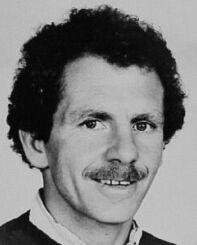
1998
Hall of Fame
Ben Sheardown
From the courts to the ice pads, Ben Sheardown is recognized for his contributions as an athlete and coach.
Born in Whitehorse, Ben spent his entire life in the territory with the exception to attend the University of Alaska in Fairbanks for his Bachelor of Education and then in Vancouver to obtain his Diploma in Counselling Psychology at UBC.
Revered as one of Yukon’s best athletes when he was young, Ben earned many awards throughout his storied career, starting with Rookie of the Year at age 10 (Midget Hockey). He played in and coached many Arctic Winter Games hockey teams, winning a gold medal in 1972, silver in 1974, ‘80 and ‘86, and a bronze in 1988. His biggest achievement at the AWG was in 1980 when he won a silver medal in hockey, then raced over and coached the junior basketball team to a silver medal.
Coaching basketball was Ben’s first love and he dedicated over three decades to Yukon’s youth. Coaching numerous basketball teams to the Yukon Championships, Ben played an intricate part in the development of basketball in the Yukon and was the first coach in any sport to utilize yearly training plans for his athletes. We will always remember Ben as a positive and multi-faceted pioneer in sport.
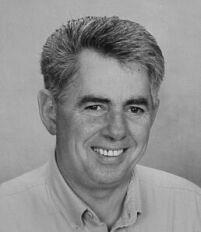
1998
Hall of Fame
George Arcand
If ever there was a coaching champion, George Arcand’s name would be top of mind
George has spent numerous years in the Yukon developing the sport of fastball as a coach and administrator. He was the Team Leader for the Canada Senior Men’s Fastball Team at the World Championships, bringing bronze home in 1986. A year later he lifted to team to the top of the podium at the Pan Am Games by winning the gold medal game.
George has held the positions of Vice President of the National Softball Board and President of Softball Yukon. An administrator through and through, he also took on the role of Executive Director of Softball Yukon.
Coaching many teams to the nationals means George was instrumental in ensuring Softball Yukon hosted many successful events. He was also involved in the Senior Men’s Hockey League as the treasurer for four years and assisted in organizing the first Triple A Championships held in the Yukon. In 1992 George served as the President of the Arctic Winter Games Host Society.
Since its inception in 1973, the Yukon Sports Federation called up George to take up a position on its board. Many of those years were spent working tirelessly as its President. The Federation is now known as Sport Yukon. His greatest accomplishments are two sport and recreational facilities in Whitehorse. George was a key force in the building of the Takhini Softball Complex as well as the Sport and Recreation Administrative Centre on 4th Avenue.
A true builder, George’s name is a cornerstone of our Hall of Fame.
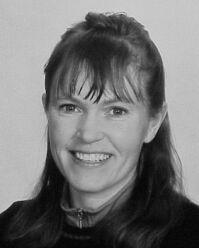
1997
Hall of Fame
Jane Vincent
One might think Jane Vincent was born with cross-country skis. Born in Montreal, Quebec in 1966, she was just three years old when she started skiing.
Her love of the sport became apparent in high school when she began entering several major competitions. Her quest to be the best motivated her through endless hours of training and by 1985 she had become a member of Canada’s National Ski Team. She stayed on track with this standard of excellence until 1992, when she realized her dream of being an Olympian when she turned 26 and represented Canada in the Albertville, France Winter Olympics.
She had moved to the Yukon in 1989 and found tremendous community support to help her overcome the then lack of Olympic-standard training facilities. Though she no longer competes on the national or international stage, she can always be found close to the trails, participating in local races. Her love for the sport remains steadfast and she continues to promote cross-country skiing across all Yukon communities.
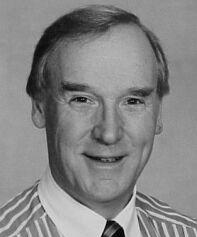
1996
Hall of Fame
Ron McFadyen
Ron McFadyen loved to talk about sport. In fact, that’s all he did! He arrived in the Yukon to pick up the mic at the Whitehorse radio station CKRW. He transitioned to CBC Radio in 1973 and two years later took up sports reporting. For the next decade, Ron covered Yukon sports daily.
Yukon communities tuned into the radio during rush hour, avidly listening for Ron’s morning sportscast. He presented the accomplishments of our Olympic athletes and featured kids who had just played their first game of soccer. Ron’s job as a reporter meant he had to walk the talk and took up running and competing in the Klondike Road Relay. His special reports shared insights and details only a participant could bring to the listener.
In 1991 Ron won the Media Person of the Year Award from Cross-Country Canada in recognition of his tireless promotion of Yukon cross-country skiers. He also won Sport Yukon’s Media Person of the Year Award eight times, a testament to his commitment to excellence in reporting Yukon sports. Ron was known for his ability to encourage everyone to share their love of sport over the airwaves.
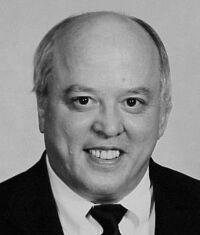
1996
Hall of Fame
Gerry Thick
From passing the puck to campaign stumping, Gerry Thick was an active member in many corners of our community.
Having lived in the Yukon for over 30 years, Gerry was devoted to sports activities from the get-go. His love of sports began in earnest playing hockey and softball. He also coached, managed and organized sports teams and sporting events. He was a player/coach on the first senior men’s softball team from the Yukon to win a silver medal at the Western Canadian Softball Championships and was honoured when he was named Yukon Coach of the Year in 1984. He was also responsible for organizing Yukon’s first senior AAA hockey team and worked diligently to fill the arena on many cold winter nights in Whitehorse.
In 1985 Gerry was appointed Director of the Arctic Winter Games Corporation. He was named Treasurer a year later and was named President of the Arctic Winter Games Committee in 1995. When he wasn’t in the arenas, in the snow or on the pitch, he could be found around the council table, having served the City of Whitehorse as councillor for two terms (1986- 1991).
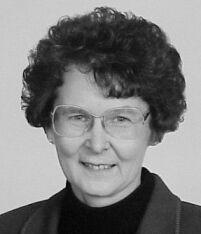
1995
Hall of Fame
Peggy Hanulik
Peggy Hanulik feels most at home on the ice. She started her skating career as a ten-year-old in Manitoba in 1950. From 1952 to 1954 she skated as a Canadian Figure Skating Association (CFSA) member with the Brandon skating club.
When she moved to Dawson City in 1965 she went immediately to the rink and became involved in the Yukon skating scene. After spending a couple of years in Dawson teaching children to skate, she moved to Whitehorse and immersed herself with the Whitehorse Skating Club.
Peggy soon became a founding member of the Firewood Figure Skating Club. Working in almost every capacity of skating, she served on boards and various committees, organized summer schools, scheduled fees and ice time, arranged music and coordinated carnivals. As the Yukon’s first qualified judge, Peggy spent nearly three decades judging Yukon competitions. She also assisted with several Arctic Winter Games, from chaperoning to organizing trials. Her experience led her to coordinate the 1992 Games in Whitehorse.
From 1983 to 1987 she was the Program Director and implemented the CFSA CanSkate and CanFigure Skate programs in the Yukon. In recognition of her remarkable accomplishments, Peggy received the 1985 Volunteer of the Month (City of Whitehorse), 1985 Volunteer of the Year (Sport Yukon) and 1993 Cariboo North Central Region BC Volunteer of the Year. Peggy truly left an indelible mark.
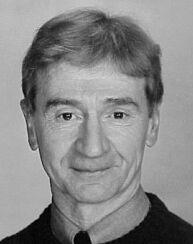
1995
Hall of Fame
Selwyn Hughes
Selwyn Hughes became a main contributor to the Territorial Experimental Ski Training (TEST) Program when he arrived in the Yukon in 1969.
He had a positive impact on the lives of hundreds of youth who were participating in the TEST Program. Being as dedicated as he was, he worked tirelessly through holidays and breaks, ensuring teenagers stayed engaged and worked for their best in the respected and challenging program. Selwyn sought opportunity for them and introduced young athletes to cross-country skiing, running, trail hiking and canoe trips. He also chaperoned and coached the annual four-week TEST trip to France; he took a group of TEST youth to Wales for a three week hiking trip in the summer of 1995.
He was instrumental in developing the goals of the TEST program and establishing the reputation the program now enjoys across Canada. Through his dedication and selfless work, Selwyn has demonstrated to young athletes what commitment and responsibility really mean.
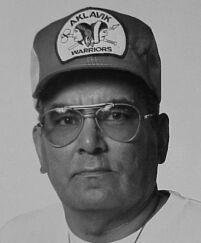
1994
Hall of Fame
Eddie Arey
A natural builder of Arctic Sports, Eddie Arey was born at Whitefish Station in northern Yukon in 1949. It’s close to Hershel Island and because his parents were born on Barter Island, Alaska, Eddie’s identity is Invpiat (formerly Alaskan Eskimo).
He was an inquisitive young athlete and learned Arctic Sports in Aklavik and Inuvik in part by watching other athletes and elders.
Eddie took up the reigns of coaching in 1980 and coached consistently for 14 years. He attended eight Arctic Winter Games as an athlete and a coach, and won over 40 medals. Arctic Sports competitions took him to the Northern Games in Inuvik, McPherson and Aklavik, the World Eskimo Olympics, and the 1990 North American Indigenous Games in Edmonton. The highest profile competition he participated in was the 1994 Commonwealth Games in Victoria.
Both young and mature athletes Eddie’s coach respect Eddie and his legacy. Arctic Sports has developed throughout the entire territory due to Eddie’s hard work, consideration and dedication. Sport Yukon will always appreciate his immense contribution to our communities.
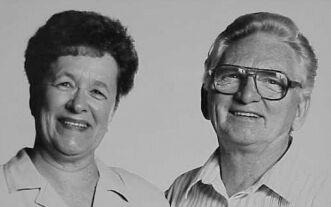
1993
Hall of Fame
Rick and Diana Griffiths
Holding a passion for sport in all seasons: This is what Diana and Rick Griffiths epitomized.
Diana Griffiths immersed herself in many activities. She joined four others for formed the Whitehorse Swim Club in 1968. Within the Club she served as Secretary Treasurer (1968-69), Vice-President (1970) and then President (1971-72). In recognition of her accomplishments, she was the first person awarded a lifetime membership to the Whitehorse Swim Club. Even when her final term concluded, she remained active in the club for another couple of years. Diana also served on the boards for the Klondettes Gym Club, Yukon Sports Federation and the Whitehorse Minor Hockey Association.
Rick was also committed to hockey and swimming. After arriving in Whitehorse in 1968, he realized hockey needed more regulation and standardization. Rick travelled to Grande Prairie to become a certified referee. He returned to Whitehorse and trained others to referee minor hockey games. Rick served on the executive for minor hockey and dedicated countless hours as a coach, leading his Juvenile Hockey team to the 1971 Canada Winter Games.
Rick was also a head swimming coach. Coaching twice daily, he took a team to the 1973 Canada Games. He was a driving force in getting a permanent roof for the Lions Swimming Pool and in appreciation of his efforts, he received a Lions Club Award. Rick also served as the first president of the Yukon Sports Federation in 1973-74.
Year-round, Diana and Rick ensured Yukoners had the opportunity to play and advance in their chosen sport.
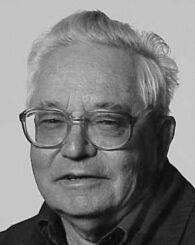
1992
Hall of Fame
Father Pierre Rigaud
Pierre Rigaud was born in Mauves-Sur-Loire, France in 1920. Twenty years later he joined the oblate Fathers in Pontman, France, and by 1946 he had become a Roman Catholic priest. Father Rigaud moved to Canada and was posted first in Burwash Landing, then Fort Nelson, BC and back to the Yukon to Ross River and finally settling in Faro.
Father Rigaud was always an integral part of each community. While in Ross River, he needed a dog team to travel to parishioners and became very interested in dog mushing. In 1962 he entered his team in the Sourdough Rendezvous competition and placed second. He faced the same challenge the next year and captured gold.
Upon his arrival in Faro in 1969, Father spent many hours supervising and assisting children in sports activities. He volunteered much of his spare time; his firmness and unrelenting fairness made him a favourite with children and adults alike. There was always keen interest to participate in any activity led by Father Rigaud. In recognition of his contributions to the community outside of church, residents organized the Father Rigaud Peewee Hockey Tournament in his honour. It became the annual highlight of the hockey season for the Faro community. Faro families on the trails and on the ice still revel in his legacy.
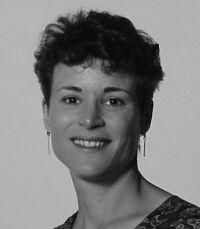
1991
Hall of Fame
Monique Waterreus
Born in Whitehorse in 1961, Monique Waterreus began cross-country skiing at the age of nine in the TEST Program. She quickly made a place for herself on the Yukon Ski Team and by 1976 started competing in national and international events.
Her athletic abilities were clear to all when she won ten Canadian championship medals — including six golds at the Canadian Juniors. She represented Canada at the World Junior Championships in 1979 and 1980, placing 15th — at the time, the third best Canadian result ever. She also won the 1981 year-long Nor-Am race series and the Sapporo, Japan International Ski Marathon. Monique participated in many races in Italy, France, former East and West Germany and at home in Canada.
Monique’s efforts were recognized by being named Yukon Female Athlete of the Year in 1977, 19878, 1980 and 1982, and received the Commissioner’s Award in 1982.
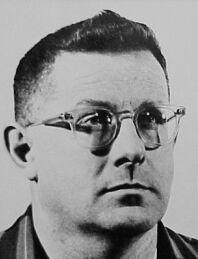
1991
Hall of Fame
Jim Light
From the prairies to our territory, Jim Light was destined to be a builder in hockey.
Born in Saskatchewan in 1928, Jim and his family moved to Whitehorse. Keenly interested in sports, he volunteered his spare time developing minor hockey. Jim believed sports were essential to maturing youth and dedicated his time and energy to ensure kids had opportunities and the encouragement needed to succeed. Jim sponsored minor hockey teams and local players so they could travel to hockey tournaments. All he asked for in return was for them to commit to hard work and make an honest effort.
Jim was the main force behind providing a destination park for families to enjoy. It’s behind the Sport Yukon building and has been named the Jim Light Park in his honour.
1990
Hall of Fame
Joe Mason
1970 marked the year Joe Mason picked up some gloves, stepped into the ring and punched his way to a successful boxing career under coach Art Fry.
He entered many events including the 1975, ‘76 and ‘77 Northwestern Canadian Boxing Championships (winning silver, gold and then bronze), the 1980 Fraser Valley Native Championships — where was was crowned the champion, a feat he repeated at the 1980 and ‘81 Palmer Boxing Tournament and 1981 Mission BC Boxing Tournament, and at the 1981 and ‘82 BC Golden Gloves competition he placed as the senior winner and then the senior runner-up.
Joe was the Yukon Amateur Boxing Champion (1970, ‘71, ‘73, ‘78 and 1984), the Yukon Amateur Boxing Athlete of the Year (1977, 1980, 1981, 1983) and received the Tom Long Box Medal three times (1974, 1980 and ‘82) and the Government Award of Excellence (1981 and ‘83).
Joe Mason gave back to the sport he loved and coached from 1980 through 1984.
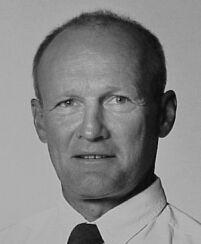
1990
Hall of Fame
Jim Fowler
Originally from Ontario, it made sense Jim Fowler began playing hockey as a teenager. When he moved to the Yukon in 1965 he continued playing and started coaching youth hockey in Whitehorse.
He dreamed of opening a hockey school for new players; he developed his idea, opened the school and ran it from 1969 through 1989. Jim was always willing to help out Whitehorse Minor Hockey when they needed a qualified coach. He led a variety of representative teams between 1965 and 1986 and took part in many Provincial Playdowns. In 1974, Jim was one of sixteen coaches selected from across Canada to attend the Team Canada vs Team Russia hockey series in the former USSR. He jumped on the opportunity to attend hockey clinics and seminars with Soviet coaches and game officials.
As one of the founding members of the Yukon Amateur Hockey Association in 1979, he has been called upon to present and assist with coaching clinics across the Yukon. He was the first hockey coach in the territory to achieve Level V Certification — the absolute highest level attainable in Canada. Jim Fowler is recognized for contributing generously to Yukon’s hockey community for more than two decades.
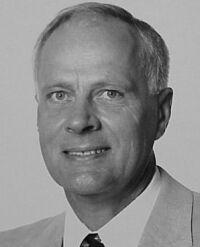
1989
Hall of Fame
Lionel Stokes
It was in high school in Alberta when Lionel Stokes picked up his first stone and sent it down a pebbled sheet of ice.
When he moved to the Yukon in 1959, Lionel continued curling. His determination in getting to the Canadian Curling Championships meant he had to qualify at the BC Interior Playdowns. He competed in these playdowns ten times as lead skip between 1960 and 1974.
Lionel became a renowned team player, great sport and dedicated curling organizer. In 1975, Yukon and Northwest Territories were granted entry to the Canadian Championships. He curled there in 1975 as lead and again in 1977 as second. In 1977 Lionel was voted All-Star Second at the Canadian Brier. In 1973 and ‘74 Lionel and his team toured Europe on a goodwill curling marathon, garnering Yukon and Canadian recognition worldwide. Another memorable highlight of his curling career was his team’s win at the 1981 Peace Country Curling Classic.
In addition to his sustained athleticism, Lionel spent many years serving countless curling committees, organizing curling events. Lionel initiated the Bert Boyd Memorial Trophy, paying tribute to curlers before and after him.
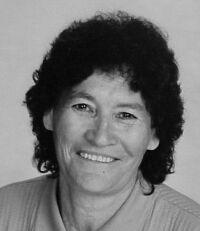
1989
Hall of Fame
Martha Benjamin
Lifetime Old Crow resident Martha Benjamin skied at the national level during the late fifties and early sixties.
She competed in Canada, the USA and Europe. As a young mother and at the age of 25, Martha was named the senior Canadian Women’s Cross-Country Ski Champion. The captured the title at a 10k race in Midland, Ontario, crossing the finish line in 43.29 minutes.
In an interview with the Whitehorse Star in 1963, Martha quoted her coach Father Mouchet as saying: “Old Crow has the potential. Martha is steel, straight steel. She could go on forever. Old Crow skiers have the ability to find a source of energy that we don’t know exists. Old Crow is the most isolated town in Canada. They have never had experience in real competitive racing. This is something they have to overcome.”
After her victory as Canadian Ski Champion, Martha went on to train for the Olympic team. Before the Olympic Games were within reach, she chose to focus on her family.
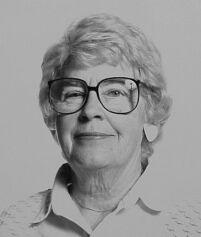
1989
Hall of Fame
Dorreene Wahl
From the moment Doreene Wahl arrived in the Yukon in 1950, she became an active member of our curling community.
Her second home was the Whitehorse Curling Club and she served on many committees. Dorreene was also the president of the Whitehorse Ladies Curling Club and represented the Yukon at the Canadian AGM that eventually led to the entry of Yukon and Northwest Territories as a member.
No only was Dorreene active at the club level, she was engaged at the provincial and territorial level too. From 1964 to 1971 she served as President on the BC Ladies Curling Association Board as Yukon was a member of that association. WHen the Yukon/NWT Ladies Curling League was established, Dorreene became the Yukon Zone Convenor, Vice-President and brought her enthusiasm to work on many different committees.
Her drive helped her teams find success as champions of the Yukon Ladies Championships (1963 and 1969), Yukon/NWT Ladies Championships (1977-’81, ‘83) and the Arctic Winter Games (1970, ‘74 and ‘76). She never gave up and enjoyed playing at the Canadian Senior Ladies Championships in 1977, ‘79, ‘80, ‘81 and ‘83. Dorreene certainly left an impression on the ice and in the boardrooms.
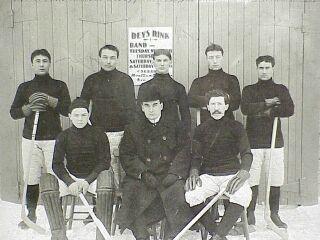
1989
Hall of Fame
The Dawson City Nuggets
Forced from the Dawson City Klondikers Hockey Club, this team challenged the Ottawa Silver Seven Stanley Cup Champions to a game in the 1903-04 season.
Under older Stanley Cup rules, once a team won the cup, they could accept challenges for the next season. The invitation from the Dawson City Nuggets Hockey Team was accepted, and two high-profile games were finally played at the height of Ottawa’s winter season in January 1905.
The Nuggets raised $30,000 and travelled east for 24 days to play the challenge. Although the Nuggets were no match for the Ottawa team, their tenacious spirit and long journey from the Klondike make this team worthy Hall of Famers.
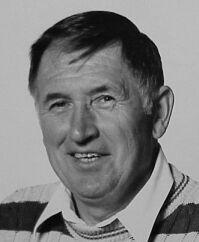
1988
Hall of Fame
Ed Shiffkorn
Austrian-born Ed Shiffkorn spent his youth alpine racing in Europe before he moved to the Yukon in 1959.
From then until 1970, Ed raced with the Yukon Ski Team, attended the International Airline races in Alaska five years in a row, and skied at several Canada Games. He also coached the Whitehorse Alpine Ski Club from 1959 to 1975, and coached Yukon teams to three Canada Games. From 1966-’72 he was the Alpine Chair of the Yukon Ski Zone. Ed also volunteered to build the Haeckel Hill Ski Facility.
He turned his sights to cross-country skiing in 1971 and began as a weekend timer. Three years later he was assisting with the organization of the Canadian Junior Championships in Whitehorse. In following years he volunteered as Finish Referee (1975 Canada Winter Games), Assistant Technical Delegate (1977 Canadian Senior Championships), Chief of Race (1980 Canadian Junior Nationals), Chief of Race (1981 World Cup and North American Championships), Technical Delegate (1982 Nor-Am Race), Chief of Race (1986 Canadian Junior Nationals) and Chief of Race for many local races. From 1977 through 1981, Ed served as the Cross-Country Chair for the Yukon Ski Zone and was responsible for the technical aspect of the sport. A clear signal of his dedication and passion for the sport, Ed took a couple of months off from work to devote all of his time to the 1981 World Cup.
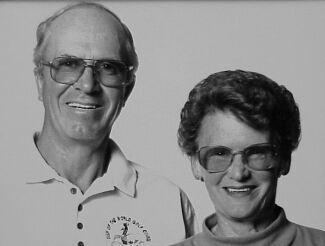
1988
Hall of Fame
Willie and Mel Olson
Sports took them from local courts and fields to the Canada Games and back; Willie and Mel Olson are whole heartedly deserving of the recognition of what they’ve accomplished to keep basketball and softball growing in the Yukon.
Willie played basketball in the Whitehorse Women’s League from 1962 to 1980. She was chosen to represent our territory and compete in the Canada Games in 1967, and went on to play on the team for successive Arctic Winter Games (1970, ‘72 and ‘74). Willie never did retire from the sport as she stayed courtside by transitioning into coaching.
Mel was also an avid fan of basketball. He played in the Whitehorse Men’s League from 1962 to 1978. Over the same period he was active coaching in the Whitehorse Women’s League (1964 to 1978). Mel coached the Yukon Women’s Basketball team at the 1967 Canada Games.
The couple’s passion for inclusion in sport went on behind the scenes as well, sponsoring softball teams for years.
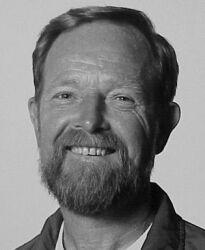
1987
Hall of Fame
Dave Stockdale
Dave Stockdale truly believed you could leave your worries at the table.
Beginning his involvement with table tennis in 1970, Dave coached a group of young athletes for the Arctic Winter Games. Two years later he became president of the Yukon Table Tennis Association and obtained national affiliation, becoming a director of the Canadian Table Tennis Association. In 1974 Dave elevated Whitehorse onto the national stage when he organized the Canadian National Championships in Whitehorse and acted as the event’s Chair. He coached many tournaments including the Junior and Senior Nationals, Canada Winter Games and the Arctic Winter Games.
Dave was also a familiar face on the pitch. He got involved in soccer as a coach in 1970, later picking up the whistle in an official capacity as a referee. He served for many years on the executive — as President as well as in a variety of other positions. Dave organized tournaments, soccer schools, coaching clinics and referee clinics. In recognition of his invaluable contributions, Dave was awarded the Health and Human Resources Award for Youth Services and the 1982 Yukon Coach of the Year.
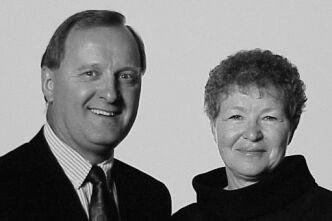
1987
Hall of Fame
Kay and Vern Haggard
It all started innocently enough when Kay Haggard started her hockey career as a casual timekeeper in 1976.
Within the year she was promoted to head timekeeper, responsible for scheduling all timekeepers for every game and training new volunteers. She didn’t stop there. Kay also assisted with the Old Timers Hockey organization. Not only did Kay show her support for hockey through timekeeping, she also served on the executive of the Whitehorse Minor Hockey Association as their Publicity Director. Her positive attitude and expertise means she was well known as a fair supporter to all children in minor hockey.
Vern Haggard started his own volunteer involvement with Yukon hockey by initiating the Old Timers Hockey League in 1976 and serving as their first president until 1980. He spent many hours organizing the annual Whitehorse Old Tier tournaments and player travel too many tournaments away from home. In 1981, Vern became a certified referee and began an official capacity in minor hockey. He dedicated a decade to coaching minor hockey starting in 1981, and a year later he coached the Midget B team at an international tournament in Sweden.
After their induction into the Yukon Sports Hall of Fame in 1987, Kay served as the Yukon Amateur Hockey Association President and Vern continued coaching and leading coaching clinics.
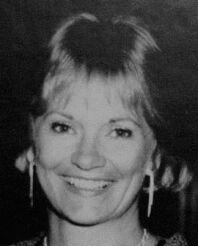
1986
Hall of Fame
Judy Saunders
Arriving in the Yukon in 1966, Judy Saunders was eager to be involved in figure skating.
WIth just a little bit of experience on her blades, she started volunteering as an assistant coach for the Whitehorse Figure Skating Club. Judy spent many hours organizing ice shows and assisting with the administration of the club. From 1977 to 1981, Judy was the Skate Yukon President;; during her term she chaired a committee that organized the Cariboo North Central Championships in Whitehorse. Driven to help athletes achieve their best performances, Judy arranged for world class skater Nina Kioten to coach at the club from 1979 - 1981.
Judy shared the coaching and administrative skills she had on the ice with athletes on the slopes, working tirelessly for the Territorial Experimental Ski Training (TEST) Program and the Yukon Sports Federation (now Sport Yukon).
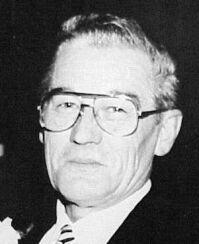
1986
Hall of Fame
Hans Maichen
Build it and they will come. That is an expression likely used when describing what Hans Maichen imagined doing for alpine skiing.
Inspired by skiing for nine years with virtually no facilities, Hans designed and built — with the help of a volunteer team — the first ski hill, tow and chalet in Watson Lake. It was 1968 and Hans was determined to make it a destination for skiing enthusiasts. From that moment until 1982, his involvement was nothing short of exceptional. He volunteered countless hours as the ski coach, running the operation of the facility, and was president of the Watson Lake Ski Club. He was also instrumental in organizing the purchase of a T-bar lift and used his creative skills to redesign and fit a second T-bar to the hill.
Hans received the 1981 Yukon Volunteer of the Year Award for his significant contributions to his community. He genuinely lifted people up.
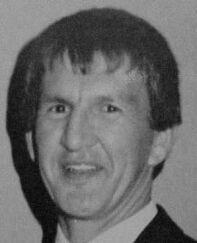
1985
Hall of Fame
Chester Kelly
From one territory to another, Chester Kelly packs his passion for sport in his suitcase. Whether filling the role of an athlete, coach or builder, Chester was always filling a role in our community.
Born in 1946 in Aklavik, N.W.T, Chester moved to the Yukon at the age of two. He’s lived in many of our communities including Mayo, Pelly Crossing, Dawson and Whitehorse. His first love as an athlete and as a coach was boxing. Coached himself by Art Fry, Chester won many awards including the Yukon Middleweight Championship from 1970 to 1979. He coached the Whitehorse Boxing Club (1981-’82) and coordinated all meets for a decade. He also coached a pair of athletes at the Canadian Senior Boxing Championships (silver and bronze) and coached a team at the Canadian Junior Boxing Championships (silver). Chester received the 1979 Yukon Male Athlete of the Year, and the 1980 and 1981 Yukon Coach of the Year Awards.
He loves as many sports as cities he’s lived in. Some of his other athletic accomplishments include running, snowshoeing, snowshoe biathlon, hockey and softball, racking up awards and records competing in several Arctic Winter Games. And when Chester wasn’t competing as an athlete, he stayed in the games by coaching.
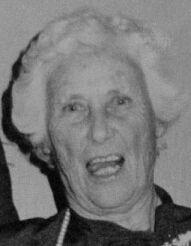
1985
Hall of Fame
Win Shandro
It started in the Prairies. Win Shandro swept her passion for curling along her way to Yukon where she organized women curlers into the Ladies Curling Association and served as its first president.
Win also cooperated in writing the first constitution and bylaws that formed the foundation of the association. She saw a need for the Yukon to align with a provincial organization, allowing them to compete at the national level. Thanks to Win’s efforts, BC accepted Yukon into its association.
Win’s efforts were rewarded with an honorary life membership to the Yukon Curling Association and in 1983 she received the Outstanding Service to Curling Award from the Canadian Curling Association.
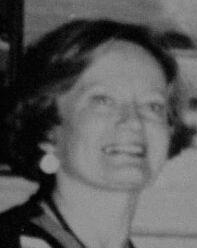
1984
Hall of Fame
Sandra Pearson
Before moving from Prince Albert, Saskatchewan to the Yukon in the mid-sixties, Sandra Pearson took to figure skating and competed in the 1954 and 1957 Western Canadian Divisional Championships and the 1957 Senior Mixed Pairs at the Canadian National Championships.
She jumped across the pond to teach figure skating professionally in Helsinki, Finland, training many Finnish national level athletes between the years of 1960 and 1962.
When she finally landed in the Yukon, Sandra consolidated informal skating groups into the first Whitehorse Figure Skating Club. Within a year the club had doubled in size — to 50 athletes — and Sandra managed to handle things alone. When the club reached 100 athletes in 1965, she recruited volunteers and an assistant coach. As athletes developed and worked to glide to the top of the podium, Sandra knew they were ready for CFSA testing and in 1967 arranged for a judge to come to Whitehorse. Sandra also coached the Arctic Winter Games and Canada Games teams.
Sandra retired from coaching in 1982 but remained a mentor, liaison and resource person to the club and athletes for years.
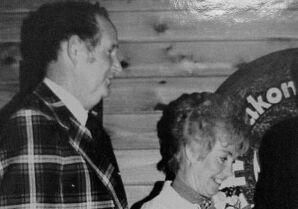
1984
Hall of Fame
Rusty and Bill Reid
What started as a job as a tow operator and passion for skiing ended up as two lifetimes devoted to sport. Rusty and Bill Reid became active members of the Whitehorse Ski Club in 1958.
While Rusty competed on the slopes, Bill volunteered countless hours to build the Heckel Hill Chalet and tow facilities and the Mt. McIntyre Chalet. When he wasn’t operating the tow or packing the hill, leading as a timer, gate watcher and race chair, Bill managed to carve out even more time to organize the Nancy Green Alpine Ski League for Juniors. In addition to being active with their ski club, the Reids were also engaged members of the Yukon Ski Division. Bill led the division as president for ten years; he was also director of the Canada Ski Association for five years and took an active role on the organizing committee for the 1981 World CUp.
In the off-season the Reids spent their time competing in and organizing softball. Rusty played Women’s Softball from 1951 to 1981; she was selected for the all-star team for several consecutive years and played at many Canada Games and in Canadian Championships. Bill remained a dynamic community member by managing numerous teams with the Women’s Softball League over 20 years.
Rusty and Bill have always led: Both were founding members of the Yukon Sports Federation (now Sport Yukon) and served on the board of directors many times. Sport Yukon is better off for the contributions of Rusty and Bill Reid.
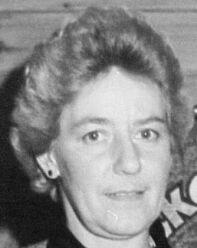
1983
Hall of Fame
Don Sumanik
Cross-country skiing is enjoyed in every corner of the Yukon, and Don Sumanik can be thanked for ensuring the sport is a staple of our community.
A resident of Yukon since 1966, Don was a major factor in the expansion of cross-country skiing in the territory. For years he worked cutting trails, setting ski tracks, promoting major events and serving as president of the Whitehorse Cross-Country Ski Club. Don was primarily responsible for bringing the 1974 Canadian National Cross-Country Championship, the 1976 Canadian National Senior Championships and the 1980 Canadian National Junior Cross-Country Championships to Whitehorse. He also served as the Race Chair for the 1974 and 1976 events, and in between he was Chair of the Canadian Ski Association.
Perhaps Don’s greatest contribution was bringing the 1981 World Cup Ski Race to Whitehorse and ensuring the Whitehorse Cross-Country Ski Chalet was built in time for the event. At the time, the Edmonton Journal wrote:
“Don Sumanik’s efforts on behalf of cross-country skiing would have surprised even the most skeptical of people who felt the World Cup finals would be only a dream the Yukon could never realize.”
Even when he was unwell and waiting for his second heart surgery of the year, Don was completely engaged during race week and was appointed World Cup Chair. Don died in 1982 but his contributions to the cross-country ski community will live on indefinitely.
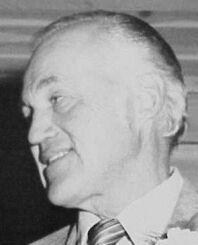
1983
Hall of Fame
Roy Reber
A transplant from Alberta, Roy Reber immersed himself in Whitehorse’s sporting community when he arrived in the territory in 1948.
He was well known for playing both team and individual sports. He enjoyed hockey, basketball, fastball, badminton and golf, playing all of them and coaching basketball and hockey. Roy coached the women’s hockey team at the 1967 Canada Games in Quebec City and then again four years later at the 1971 Canada Games in Saskatoon.
Roy contributed a great deal of energy in the early years of the Arctic Winter Games. He competed in the first games in 1970 as a basketball and a mere two years later Roy was the General Manager of the games — held in Whitehorse in 1972. The 1974 Arctic Winter Games Corporation appointed Roy to the Steering Committee and he remained a member of the Board of Directors until 1978.
A wide variety of projects and volunteer roles kept him engaged for his entire life. He enjoyed his years serving on the National Advisory Council for Fitness and Amateur Sports, and his induction into the Yukon Sports Hall of Fame reflects Roy’s encouragement of all facets of sports participation.
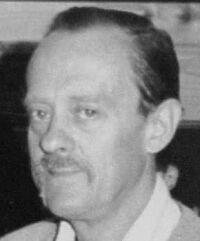
1982
Hall of Fame
John Erickson
He picked up the bat and never looked back. John Erickson’s early start in softball led to a lifelong commitment to many sports.
John’s softball career started in 1947, playing for the Young People’s Association in the Yukon. The team became the Capitols in 1953, and with the addition of a handful of newcomers the team was renamed the Dawson Halls, sponsored by Dawson Construction. John became the sponsor in 1960 and the team was renamed the Regina Royals. From 1947 to 1960, John was a member of the championship team four times. Though he hung up his spikes as a playing member around 1980. John continued to sponsor the Royals.
Though most passionate about softball, John sponsored many teams including minor and adult softball hockey. Two sports led to three, and John organized and operated a ten pin bowling league in Whitehorse and assisted in organizing the commercial hockey league. John Erickson was the Softball Canada Commissioner of the Yukon from 1972 to 1985, and he never forgot his grassroots.
1982
Hall of Fame
Charles Mackenzie
With an enthusiastic start to judo as an athlete in 1961, Chuck Mackenzie learned quickly and developed into an assistant instructor within two years. He became the head instructor for the club a year later.
As an athlete Chuck won the 1963 Yukon Judo Championships in the junior heavyweight division, and he won two gold ulus at the 1972 Arctic Winter Games. Always pursuing the next level, Chuck received his first degree black belt in 1970 and his second degree black belt in 1976.
Besides being an athlete and a coach, Chuck was a formidable organizer. He coordinated the 12th annual Canadian Judo Championships in Whitehorse in 1973 and received an award from Judo Canada for his outstanding contribution to the sport the same year. Chuck also developed the Yukon Kodokan Black Belt Association. Sport Yukon recognizes Chuck’s consistent efforts and achievements as an athlete, coach and builder of Judo in the Yukon.
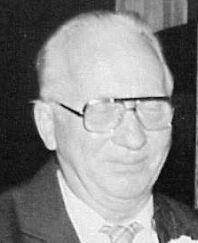
1981
Hall of Fame
Arne Anderson
A tremendous love of cross-country and alpine skiing inspired Arne Andersen to spend endless hours creating and enhancing a ski hill and ski jump near the Whitehorse General Hospital.
Not only did Arne develop these facilities for the entire community, he spent much of his volunteer time coordinating competitions and instructing young skiers to ski.
He represented Canada and Yukon in many competitions in Fairbanks and Anchorage, Alaska, as well as in Whitehorse. In 1948 he won the grade aggregate championship for jumping, cross-country skiing and giant slalom in an international meet in Alaska.
Tempted by an offer to be a ski instructor in Sun Valley, California, Arne chose to remain in the Yukon and continue to build up the sports he loved.
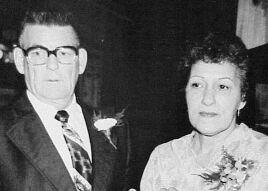
1981
Hall of Fame
Bessie and Cliff Lawrence
In the early 1950s, Bessie and Cliff Lawrence were active in several community recreation projects. They helped build and grow the Destruction Bay Curling Club, the Beaver Creek and Teslin skating rinks, and the Teslin ball diamond.
Bessie and Cliff also organized sport days for children living along the North Highway and were prime movers in the establishment of junior curling in Beaver Creek and Testlin, instilling a love and art of the game in youngsters.
They were generous with their time and spent hundreds of hours teaching, coaching, travelling, inspiring and perhaps most of all, sharing their passion and igniting others’ enthusiasm for all sports.
Bessie and Cliff’s support was unwavering and they never failed to send encouragement and greetings to athletes competing outside of the Yukon. Their constant show of support for sport continues to manifest itself in Yukoners to this day.
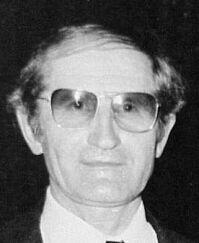
1980
Hall of Fame
Father Jean-Marie Mouchat
A French Oblate Priest who was part of the resistance and fought Nazis on a pair of skis, Father Jean-Marie Mouchat carved another unique path in the Yukon.
Father Mouchat emigrated from France to Canada after the war. He first settled in Telegraph Creek, BC and then he was sent to Old Crow in an attempt to convert the Gwich’in people to a Western concept of religion and God in 1955. Finding the Anglican Church was already trying to do that, he turned his attention to another form of conversion and taught the people of Old Crow how to ski.
He took heavy wooden skis donated by the U.S. military and formed the Territorial Experimental Ski Training program (TEST) in the sixties. Within a decade the Canadian National Ski Team was filled with athletes Father had nurtured in the Yukon and Inuvik.
The TEST program aimed to develop character in young children through cross-country skiing. By combining a strong work ethic with knowing how to be healthy and live well, Father Mouchat was convinced his ski students would be successful for the rest of their lives. Some of his TEST athletes went on to compete in Canadian Championships, World Ski Championships and the Olympics — including the 1972 Sapporo, Japan Olympics and the 1976 Innsbruck, Austria Olympics.
Father Mouchat inspired First Nations people to reconnect with the power of their bodies and reawaken their link to the land. Rather than preaching to them, he taught them to ski. The history of cross-country skiing in the Yukon owes much to the vision, strength, character and wisdom of Father Mouchat. The annual Father Mouchat Memorial Loppet in Old Crow is just one example of how his legacy continues to live and breathe on ski trails around the world.
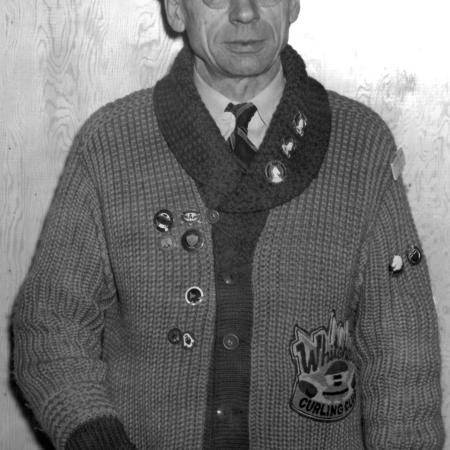
1980
Hall of Fame
Bert Boyd
Having learned the importance of the pebble, the art of touch and the tactics of sweeping in Foxwarren, Manitoba, Bert Boyd moved to Whitehorse in 1948 and immediately jumped into the curling scene.
It was his win at the 1952 Dawson City Bonspiel that inspired him to build a team and build a sophisticated curling rink in Whitehorse. At the time, the Whitehorse curling rink had burned to the ground and the only place to curl was at a makeshift rink in an airplane hangar. In the days long before online fundraising, Bert sold shares, raised money and solicited personal and donations to build the rink.
Built entirely with volunteer labour and donations, the Whitehorse Curling Club officially opened in 1953. The club elected its first executive and Bert was voted in as president. He went on to serve as the president of the Yukon Curling Association for many years, and his influence ensured the association grew in popularity and structure. Bert successfully lobbied to have Yukon recognized as an official zone by the Canadian Curling Association and in 1959, BC granted Yukon entry into the BC playdowns.
In addition to his accolades and achievements in our territory, Bert Boyd was named to the Canadian Curling Hall of Fame in 1975.
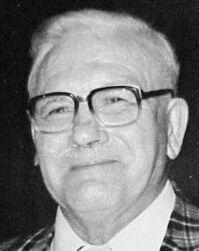
1980
Hall of Fame
Art Fry
Muhammad Ali claimed champions aren’t made in gyms; they’re made from something deep inside them — a desire, a dream, a vision. That is a perfect way to describe Art Fry.
Art was born in Vancouver, BC in 1912 and he was a professional boxer by the age of 16. After two years of pro boxing in Vancouver, he upped and moved to Dawson City. By 1931 his desired to pick up his gloves once again. He followed his dream and distinguished himself as the Yukon/Alaska champion in several weight classes. Art retired from the ring in 1941.
His vision led him to develop boxing throughout the territory. In 1970 he founded a new boxing club in Dawson City and coached many athletes at both the recreational and competitive levels. Art was instrumental in forming the Yukon Amateur Boxing Association. His contributions to boxing and his community were recognized with the 1977 Coach of the Year Award from the Yukon Sports Federation (now Sport Yukon) and the 1980 Lifestyle Award from the Government of Canada. Art continued working as a builder of boxing until he passed away in Dawson City in 1994.
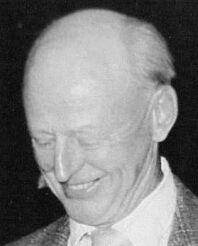
1980
Hall of Fame
Bill Brewster
It started as a passion for hockey in Alberta when Bill Brewster played with the Canmore Legionnaires. He moved to the Yukon in 1950 — by then hockey was in his veins. Bill added coaching to his hockey resume in 1962 and spent the following 16 years strengthening and promoting minor hockey in Haines Junction.
Bill served as the President of the Yukon Amateur Hockey Association and Chair of the Haines Junction Minor Hockey Association. In 1972, Bill proved himself as a key fundraiser for the Haines Junction hockey rink. He donated guided hunts from his outfitting company to be raffled off, and coordinated walk-a-thons and bottle drives. In gratitude for his tireless efforts, the community dedicated the rink to him and named it the Bill Brewster Arena.
There most apt recognition possible came when Bill received the “Mr. Hockey Award” (1970-’71) from the Whitehorse Minor Hockey League and the same award from the Haines Junction Minor Hockey Association from 1962 through 1978. With so many awards on his mantlepiece, Bill retired from the Haines Junction hockey scene to serve his community on a great scale in politics.
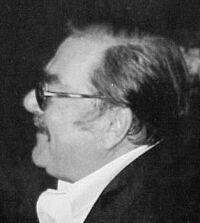
1980
Hall of Fame
Call Miller
It’d be a challenge to find a sport in the Yukon that Cal Miller wasn’t a builder of.
As soon as he arrived in the Yukon in 1951, Cal got to work as a strong supporter of midget hockey, women’s and men’s senior softball, little league ball, the Old Crow dog team and the Capital Hotel’s soccer, basketball and bowling squads. He can take credit for sending the first curling team to compete outside of the territory.
Cal was also a welcome member of the executive responsible for sending the first Yukon team to the Canada Winter Games. He carved out his own niche as a founder of the Arctic Winter Games.
Numerous sports and their communities benefited from Cal Miller’s generosity. Sport Yukon and all of our members and partners have so much to celebrate in thanks to Cal’s contributions.

